Next Generation Leaders (NGL) Program > IGF Ambassadors Program > Past IGF Ambassadors
Past IGF Ambassadors
2018 IGF Ambassadors
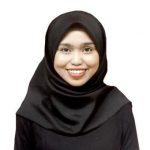
Aisyah Shakirah Suhaidi
Aisyah Shakirah Suhaidi (Malaysia) is presently undertaking her undergraduate studies in law at University Malaya in Kuala Lumpur, and most recently completed external studies in the area of multilateralism via a partnership of the EU and ASEAN at Maastricht University and Universitas Indonesia. Aisyah has participated in Internet governance fora such as WSIS, ITU’s Girls Day in Geneva, and ICANN 52. She is particularly interested in the areas of multilateralism, multistakeholder cooperation, gender affairs, and youth engagement in Internet governance. Aisyah is actively involved in the ISOC Malaysia Chapter, organizing activities such as the Malaysian Internet Governance Forum and the Safer Internet Forum for Youth.

Akua Walters
Akua Walters (Jamaica) runs a startup called Hacker Hostel. The organization identifies final year Computer Science, Math, Physics and Electrical Engineering students from countries across the Caribbean and pairs them with senior software engineers for four weeks, where they undergo a boot camp that allows them to easily transition into junior software engineering roles. He also advises members of the Government of Jamaica on matters related to innovation and entrepreneurship. His goal for attending the Paris IGF meeting is to further push the dialogue across the Caribbean region around the governance of the Internet, the essence of net neutrality, and the nuance of fostering local talent to ensure a free and open Internet for all.
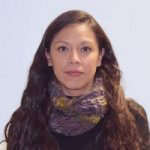
Anahiby Becerril
Anahiby Becerril (Mexico) is a Researcher and Professor who has been working at the intersection of Law and ICTs for several years, and specializes in Cybersecurity and Human Rights Online. She currently works with the INFOTEC Centro de Investigación e Innovación en Tecnologías de la Información y Comunicación, and most recently participated in the creation of the National Cybersecurity Strategy for Mexico in collaboration with the Organization of American States (OAS). Anahiby has been chosen as the Implementation Lead for the ‘Legal Framework and Self-Regulation’ group for the implementation of the strategy. She is a Returning Ambassador having first participated in the program at IGF Guadalajara.

Dajana Mulaj
Dajana Mulaj (Albania) is an Internet Governance Specialist and the Coordinator of the Albanian Youth IGF, an open platform which aims to empower youth in her country to engage in Internet-related discussions. In 2017, she was selected as a youth participant at the South Eastern European Dialogue on Internet Governance (SEEDIG) and then later as a YouthDIG Fellow at the European Dialogue on Internet Governance (EuroDIG). She also attended the 2017 IGF Meeting as an Internet Society Youth@IGF Fellow. Dajana is currently involved in Digital Grassroots, an initiative which was founded by ISOC Youth@IGF Fellows to empower young people to address Internet-related issues in their communities and to increase youth participation and influence in the Internet ecosystem.
She is driven by the impact that young people are having in creating a healthier Internet through authentic leadership and passionate community building.
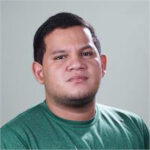
Eduardo Tome
Eduardo Tome (Honduras) is an IT Policy Officer at Red de Desarrollo Sostenible (Sustainable Development Network), an NGO that focuses on capacity building through the use of ICTs, multimedia production, and community radio, and also manages the ccTLD for Honduras. He is currently the Vice Chair of the ISOC Honduras Chapter and a member of the Youth SIG (Youth Observatory). Eduardo holds a law degree from Universidad Nacional Autonoma de Honduras. He is part of the chapter team that received a Beyond the Net grant in 2017 to deploy his country’s first community network (CN) along with the Lencas (indigenous people) in the Azacualpa Valley, a remote region that has no paved roads, no running water and no electric power. Eduardo has been a LACNIC Fellow and is a Member of the Legal and Policy working groups in LACTLD.

Elif Sert
Elif Sert (Turkey) is a Graduate Law Student at the University of California – Berkeley, with a particular focus in information technologies law. She previously worked as a Privacy Consultant at a startup and a Research Assistant at Istanbul Bilgi University. Her academic work is centered around the use of algorithms and how they affect human rights, especially the right to privacy. She has also been involved in research topics such as cybersecurity, artificial intelligence (AI), GDPR, telemedicine law, and data localization. Elif has attended the Balkan School on Internet Governance, and has been a Youth@IGF Fellow, RIPE NCC Fellow and a YouthDIG Fellow. She is a Board Member of the ISOC Turkey Chapter and a Co-Organizer/Executive Committee Member of YouthIGF Turkey. Elif is a practicing yogi and has a deep passion for academic research.

Joshua Musasizi
Joshua Musasizi (Uganda) is the Secretary-General of Internet Society Uganda Chapter. The chapter has implemented a number of projects related to child online protection and the translation of Wikipedia into local languages to promote easy access and also uploading local content for schools to leverage as an educational resource. Joshua is the Co-Founder of TIFAT Uganda Ltd, a social enterprise that harnesses the use of technology to uplift and improve livelihoods of small and medium scale farmers, especially in rural Uganda. He is also the Country Director of Matendo International, an NGO that works with rural communities in Uganda to solve challenges that local people face on a daily basis with emphasis on child education, health campaigns and poverty alleviation. He is a former AFRINIC Fellow.
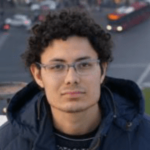
Luã Fergus
Luã Fergus (Brazil) is currently a Law Student and a Research Assistant at the Center for Technology and Society of FGV RIO (CTS/FGV). He has been dedicating himself to academic endeavor around Internet governance, specifically personal data protection in smart cities and copyright reform. He is also interested in areas such as Youth Engagement, Community Networks, and Intermediary Liability. Along with colleagues, he founded the Youth SIG (better known as the Youth Observatory). In 2016 and 2017, Luã was invited by the Brazilian Internet Steering Committee (CGI.br) to be a Mentor to the Youth@IGF Brazilian participants.
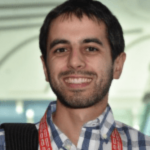
Matías Jackson
Matías Jackson (Uruguay) is an Assistant Professor of Computer Law at the University of the Republic of Uruguay, where he also obtained his undergraduate law degree. He is currently undertaking post-graduate studies in Information Systems and IT Management at the same institution. He first got involved with Internet governance when he was selected for the NextGen@ICANN program in 2015. Matías is a chapter leader at the ISOC Uruguay Chapter and is part of the team that established the Uruguay IGF. He has also been an ICANN and LACNIC Fellow, and supports a number of different youth initiatives in his country and across the region. In 2016, he participated in the South School of Internet Governance (SSIG) in Washington D.C.

Noha Ashraf Abdel Baky
Noha Ashraf Abdel Baky (Egypt) is Senior Data Storage Analyst at Dell EMC. She is also a Dell University Relations Committee Member and a Dell Social Media Ambassador. She has previously worked for multinational companies like Microsoft and Orange Business Services. Noha has participated in the Mozilla Open Leaders Program, and is a Fellow to the Middle East and Adjoining Countries School of Internet Governance (MEAC SIG). She was selected as an ISOC Youth@IGF Fellow in 2017, and after the Geneva IGF, she co-founded Digital Grassroots with other fellows, a youth-led initiative to promote digital citizenship. She has completed several ISOC online courses, and is currently part of the organization’s group of qualified moderators.
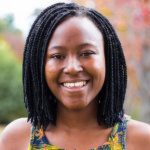
Nomsa Mlambo
Nomsa Mlambo (Zimbabwe) is a Bachelor of Laws (LLB) graduate from the University of Cape Town, and is currently studying to be admitted as an attorney of the High Court in Zimbabwe. She recently moved back to Zimbabwe after living and working in South Africa developing the next generation of African leaders at the African Leadership Academy. She is an alumni of the Internet Society Youth@IGF program and the NextGen@ICANN program. Her passion is facilitating increased access to the Internet, developing local content, and assessing the impact of Internet shut downs on the African continent, and to this end she aspires to formulate policies that address these challenges in her country.
Nomsa is a Member of the Golden Key Society and the Brightest Young Minds Network and believes in leveraging your network to bring about the change you want to see.
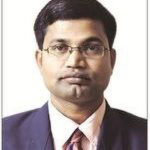
Priyatosh Jana
Priyatosh Jana (India) is an Assistant Professor of Computer Science and Engineering at Mallabhum Institute of Technology where he is focused on teaching and facilitating to undergraduate engineering students along various streams. He is also the single point of contact (SPOC) of the National Programme on Technology Enhanced Learning (NPTEL) for MOOCs and the Remote Center Coordinator of the National Mission on Education through ICT (NMEICT) for the Government of India. Priyathosh has participated in the Asia-Pacific School on Internet Governance (APSIG), IETF 98 Chicago, and has been selected as a Fellow to the India School on Internet Governance (InSIG). His passion is facilitating capacity building and empowering individuals to use the Internet to transform their lives.
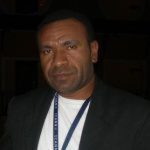
Stanley Osao
Stanley Osao (Papua New Guinea) is a Control Systems Engineer by profession. He currently serves as Board Chair of iPNGC for the second term. He has also been active in ICANN with their fellowship program and At-Large communities. Stanley has worked in academia, international NGO, the private sector, and also undertakes freelance work in ICTs, telecommunications, and electrical engineering. He has a technical background in industrial communication systems, computing and automation engineering. Stanley graduated with a BEE from PNG University of Technology and a MEng in Control Systems from Auckland University of Technology. His main interests in the Internet space is to promote, defend and facilitate a fair, secure, open, safe and affordable internet in his country and region.

Yeseul Kim
Yeseul Kim (South Korea) is presently studying Science and Technology Policy at the Korea Advanced Institute of Science and Technology (KAIST) where she is focusing on Internet governance and cybersecurity. She has been working with organizations such as Creative Commons, Wikimedia, ICANN, ISOC and others. Yeseul has also participated in the Asia-Pacific School on Internet Governance (APSIG), Asia-Pacific Internet Governance Forum (AprIGF) and the global IGF. Her main study areas are cross-border legal cooperation for the Internet, IoT data, and other cross-border data transactions. She has recently developed an interest in how the Internet can preserve world heritages and cultures, and as such is studying what impacts the Internet and social media have brought to this field.
2017 IGF Ambassadors

Adaora Okoli
Adaora Okoli (Nigeria) is a Broadcast Journalist working with Info FM 99.3 Ltd. She also runs a blog techcultureng.com which is focused on telling stories of young people using ICTs for development in the Niger-Delta and across the broader Africa continent. It is also a platform for awareness and advocacy for digital rights and internet freedoms. Adaora has a legal background and holds a LLM in Internet Law & Policy from the University of Strathclyde.
Her passion is to ensure that people in Nigeria and Africa can use the Internet to develop their environment by impacting digital skills and ensuring the right Internet policies are adopted. She has volunteered and partnered with organizations such as Alliance for Affordable Democracy (A4AI), Paradigm Initiative, and Nets Rights Coalition Africa to champion internet accessibility and Internet freedom issues.

Alessia Zucchetti
Alessia Zucchetti (Uruguay) is the Research Project Manager and Coordinator of Ceibal Foundation in Uruguay. Alessia has been involved in Internet governance and policy for the past four years, and her current work includes developing and managing national and international ICT projects and programmes, capacity-building initiatives, and providing policy assessment in education & technology, digital citizenship, open access, privacy and data protection, among other fields.
Before joining Ceibal Foundation, she worked at the Directorate General of the European Commission (Brussels) and the Information and Communications Center of the European Commission (Italy). She holds a Bachelor of Arts in International Relations and a Master of Arts in Mass Media and Political Science. Alessia is a Past Fellow of the South School of Internet Governance and is currently involved with organizing the YouthIGF in Uruguay.
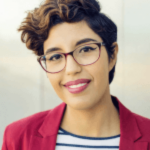
Angélica Contreras
Angie Contreras (Mexico) is a Writer for the Association for Progressive Communications’ GenderIT e-zine and also runs a feminist digital magazine. She is a Youth@IGF Fellow and a Founding Member of the Youth SIG (better known as the Youth Observatory). She actively participates in the ISOC Mexican Chapter and is now in the process of forming the Gender Issues SIG. Her primary interests are access, diversity, and gender issues and the Internet. She holds a Bachelor of Communications with studies in social communication and gender, and is currently studying for her Bachelor of Laws (LLB).
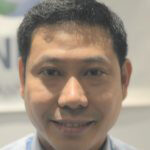
Aris Ignacio
Aris Ignacio (Philippines) is the Dean of the College of Information Technology at Southville International School and Colleges in the Philippines. He is an advocate for the youth being a major stakeholder group in Internet Governance discussions, and has facilitated the participation of university/college students in local, regional and global Internet governance events, particularly in Asia-Pacific. Aris is a Board Member and Vice President of Development at the ISOC Philippines Chapter. He is a Past ICANN Fellow and was a participant the 1st Asia Pacific School of Internet Governance.

Bruna Santos
Bruna Santos (Brazil) is the Coordinator at the Research Lab on Public Policies and Internet (LAPIN) where she focuses on studying multistakeholder processes and broader Internet governance related issues. She holds a Bachelor of Laws and is currently pursuing a Masters in Internet Regulation at the University of Brasilia. Over the past couple of years, Bruna has worked on initiatives such as the Brazilian Civil Rights Framework for the Internet, the Arena NetMundial (a civil society unconference during NetMundial) and the Draft Brazilian Data Protection Bill.
She is a member of the ISOC Youth Observatory, alumni of the Brazilian School of Internet Governance (EGI.br), a CGI.br Fellow to the 9th LACIGF and a Past ICANN Fellow.

Elizabeth Longworth
Elizabeth Longworth has over 28 years experience on issues of internet development and policy as a lawyer, privacy expert, business person, activist, facilitator and international policy-maker. From 2003-14 she held various senior director positions in the United Nations, setting strategic direction and providing leadership and management oversight. She led global programmes which relied on consensus-building, multi-stakeholder partnerships, and maintaining strong relationships with civil society (including community and technical groups, academia and business), and governments.
As the Director of the UN Office for Disaster Risk Reduction (UNISDR), Elizabeth’s experience includes disaster proofing infrastructure and services, and risk management.
During a crucial period of international debate, Elizabeth provided leadership on promoting an open, stable and inclusive global internet as the Director responsible for UNESCO’s engagement in WSIS (World Summit of the Information Society), as an international expert and author on key principles of internet governance, and in the establishment of the Internet Governance Forum. She chaired the United Nations (UNESCO) Expert Committee on Cyberspace responsible for 197 countries agreeing on the international instrument providing for Universal Access to and Multilingualism in Cyberspace. During her career as a Director in the United Nations, Elizabeth led global development programmes to bridge the ‘digital divide’ and promote universal access to knowledge through ICTs (to build inclusive ‘knowledge societies’). The importance of internet access, use, multilingualism, interoperability, capacity development and infrastructure featured prominently throughout her work.
Previously Elizabeth was a Sector Director in Industry New Zealand (now NZTE), responsible for promoting growth and innovation strategies within the New Zealand ICT industry. For ten years she was the principal of a specialist legal practice, advising internationally on: the privacy implications of the internet and trans-border data flows; intellectual property; and legal and policy implications of ICTs. Her publications include the leading privacy text in New Zealand and various writings on cyberspace law. She was an adviser to the New Zealand Law Commission on e-commerce.
Elizabeth’s governance experience includes advising corporates, international organisations and governments on their risk management, legal responsibilities, oversight and accountability arrangements. She has also been the Independent Chair of various bodies including: the national telecommunications self-regulatory body on number administration and portability; the national ethics committee on environment and science; the United Nations interagency high level committee (comprising 29 agencies) on disaster risk reduction and resilience; and as an establishment member of a national domain name society.
Elizabeth has a Master of Laws from Osgoode Hall, York University, Canada. She was admitted as a barrister and solicitor of the High Court of New Zealand in 1979. She is also a professionally qualified mediator and alternative dispute resolution trainer.
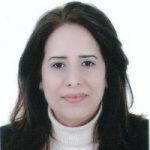
Hanen Idoudi
Hanen Idoudi (Tunisia) is an Assistant Professor in Computer Science at the University of Manouba. She has a strong background in the technical aspects of Internet protocols, enterprise networks protocols and overall network design in general. She has a particular interest in routing and security in wireless technologies. She is an ISOC Next Generation Leader, having completed the ’Shaping the Internet – History & Futures’ online course in 2012. She is actively involved in the ISOC Tunisian Chapter, is an ICANN Fellowship alumni, and has participated in the Middle East and Adjoining Countries Internet Governance School in 2016.
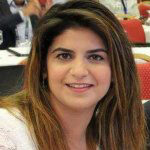
Ines Hfaiedh
Ines Hfaiedh (Tunisia) is the Head of Education Programs at the Arab World Internet Institute (AWII). She is also the AWII Representative on the Partnership and Steering Committee Member at ICANN’s MEAC School of Internet Governance. Ines holds a Bachelor of Arts in English Language Teaching and a Bachelors of English Literature. She has previously been a Fulbright Teaching Assistant at the Catholic University of America (District of Columbia). Ines is an ICANN Fellow and Coach and has been involved with DiploFoundation and the Geneva Internet Platform.
She is a passionate advocate for Internet-enabled education as well as a strong believer that Civil Society needs to play a greater role in Internet governance dialogues.

Josephine Miliza
She is currently the Africa regional coordinator for the Association of Progressive Communication-LOCNET project hosted by KICTANET. The LOCNET project focuses on creating an enabling environment for the growth of sustainable and scalable community networks.
In 2016, Josephine has been involved in community networks since 2015 and led the establishment of TunapandaNET a community network in Kibera Nairobi Kenya that focuses on promoting access for all, adoption of digital technologies and ICT capabilities for the local community.
She has become a champion for promoting the community networks movement in Africa participating in organizing the Africa community networks summit, awareness building, and capacity building forums.
Her current interests are in bottom-up sustainable connectivity models and creative approaches to nurturing an ecosystem that fosters sustainable livelihoods especially for youth and women in Africa.
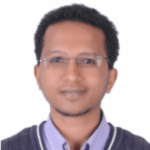
Kinfe Desta
Kinfe Desta (Ethiopia) is a Lecturer at Addis Ababa University, where his teaching and research interests are Internet governance and media law. He undertook his undergraduate studies in law in Ethiopia and further graduate studies in Norway (IT Law) and the UK (International Law). He is a past ICANN Fellow and has been involved with the internationalized domain name program for the Ethiopic Script. He is also a member of ICANN’s Non-Commercial Stakeholders Group within the Generic Supporting Organization. Kinfe is passionate about Internet governance, and is current dedicating his time to a long-term research project on the Internet Bill of Rights and the post-Snowden privacy discussions at the United Nations.
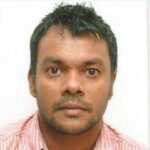
Lenandlar Singh
Lenandlar Singh (Guyana) is a Senior Lecturer in Computer Science at the University of Guyana. He is an ISOC Next Generation Leader (NGL), and participated in the ’Shaping the Internet – History & Futures’ online course in 2012. He has participated in both the EuroSSIG Fellowship and the LACIGF Fellowship programmes. He is currently part of the team which is leading the formation of the ISOC Guyana Chapter, and hopes that his experience at the IGF will help with the development of the chapter. At the University of Guyana, he recently created an Internet governance course that will debut in the curriculum in 2018. Lenandlar is highly committed to educating the next generation about the Internet in general and to encourage more youth participation in IG issues.

Paola Pérez
Paola Pérez (Venezuela) is the Vice-President of the ISOC Venezuelan Chapter and the Chair of the LACNIC Public Policy Forum. She is also a human rights activist for the Network of Citizen Activists (REDAC), Chief Executive Officer of the non-profit foundation ‘Lids for Life’, and a member of the IT Women Working Group in LACNIC. Her interests are online censorship, mass surveillance, net neutrality, access, infrastructure, IoT, freedom of expression and association, gender issues and the Internet, and sexual exploitation online. Paola is a former Google Fellow and a Returning IGF Ambassador.

Sarah Kiden
Sarah Kiden (Uganda) is currently a Ford-Mozilla Open Web Fellow hosted by Research ICT Africa in Cape Town, South Africa. She is working on an Internet measurements project, focusing on broadband performance, and Internet peering and users’ behaviour in some countries in Africa. Sarah possesses a technical background in networks and systems administration through her previous employment as Head of Systems at Uganda Christian University. She holds a Master of Science in Information Systems, and has worked mostly in research and education networks.
Sarah is involved with the ISOC Uganda Chapter and in ICANN as the Secretary of the African Regional At-Large Organization (AFRALO) which represents the interests of end users.

Susannah Gray
Susannah Gray (United States) is a Communications Consultant who works with organizations such as ICANN, AFRINIC, APNIC, AMS-IX, Royal Dutch Shell, and others. She has previously worked for ICANN, RIPE NCC and Greenpeace in the areas of media analysis, corporate communications and publication. Susannah is the President and Chair of the ISOC San Francisco Chapter, and has been involved with the IANA functions transfer and the ICANN CWG Accountability proposal. She holds a Bachelor of Arts in Sociology, Social Anthropology and Business Administration from Keele University, and is multilingual.
Susannah was a member of the steering committee for the 2017 IGF-USA. Her interests are access and diversity, gender issues, critical Internet resources, IoT, and privacy.

Tracy Kadesa
Tracy Kadesa (Kenya) is an Independent ICT Researcher focusing on intellectual property online consulting. She also works with the Kenya ICT Action Network (KICTAnet) and Collaboration on International ICT Policy in East and Southern Africa (CIPESA). Tracy was part of the KICTAnet team that organized the Kenya Internet Governance Forum (KenIGF) and the Kenya School of Internet Governance (KenSIG). She is currently part of a team that is reviewing the Computer and Cyber Crime Bill for the Government of Kenya. Tracy holds a Bachelor of Law degree from the University of Nairobi and a Post Graduate Diploma in Intellectual Property Law form the Kenya School of Law.

Vashkar Bhattacharjee
Vashkar Bhattacharjee (Bangladesh) is the Program Manager at Young Power in Social Action (YPSA), where he is responsible for the overall strategic direction and management of disability and ICT related activities. He is also the focal person for DAISY (Digital Accessible Information System) and 2nd Vice President at the Global Alliance on Accessible Technologies and Environments (GAATES). He has been working as a National Consultant in developing web accessibility with the Access to Information (A2I) initiative in the Office of the Prime Minister.
Vashkar is interested in ICTs for development, but he is deeply passionate about e-accessibility and information accessibility for persons with disability. He is visually impaired, but refuses to let this be a restriction in his life and to his achievements.
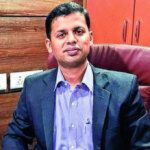
Vineet Kumar
Vineet Kumar (India) is the Founder and President of Cyber Peace Foundation and National Anti-Hacking Group (NAG). He has received several national awards for his work in the area of cybersecurity, including the ‘National IT Excellent Award’, ‘Cybersecurity Entrepreneur of the Year’, and the ‘Top 100 CISO Award’. He was the recipient of the Chevening Scholarship by the British Government, and studied Cyber Defense and Information Assurance at Cranfield University (UK). Vineet is an Advisory Council Member at Public Interest Registry (PIR) and is a Member of the Expert Group on Cybersecurity for the Government of India.
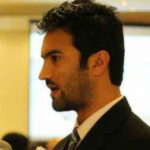
Zakir Syed
Zakir Syed (Pakistan) is the Research Manager, Telecoms & ICT Market Research at SAMENA Telecoms Council where he looks at emerging technologies and innovation, public policy, regulation and the latest trends in the role of ICTs in different sectors. He holds a Bachelor of Science in Software Engineering, Master of Business Administration (MBA), and a Master of Science in Information Technology (MSIT). Zakir has participated in the ISOC Next Generation Leaders programme and is also ICANN fellowship alumni. He is particularly interested in ICTs for development (ICT4D), evidence-based policy development, and the impact of mobile Internet on the Middle East and North Africa.
2016 IGF Ambassadors
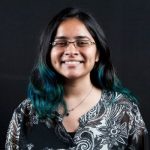
Aarti Bhavana
Aarti Bhavana (India) is a Programme Manager with the Centre for Communications Governance (CCG) in New Delhi. She is relatively new to Internet governance, and has been involved with ICANN processes such as the IANA transition, CCWG accountability and various human rights-related processes within ICANN. She is eager to broaden her involvement in the Internet governance ecosystem, and believes that the IGF is the ideal platform. Her background is law, specifically human rights and institutional accountability. Aarti holds a BA, LLB (Hons) from the National Law University in Delhi, India.

Adrian Wan
Adrian Wan (Hong Kong) is a Post-Graduate Student at the Lee Kuan Yew School of Public Policy at the National University of Singapore. He previously worked as a Beijing-based technology correspondent for the South China Morning Post. Adrian is interested in topics at the intersection of technology and human rights. He was recently employed at the research arm of the APEC Secretariat as a Google Policy Fellow, and focused on issues related to digital trade policy and digital skills development in Asia-Pacific.
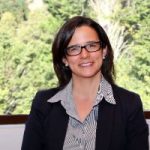
Adriana Castro
Adriana Castro (Colombia) is a Research Professor at the Universidad Externado de Colombia, School of Law. She obtained her LLM in International Business Law from the Queen Mary, University of London and is currently studying her PhD in Law at the Universidad Externado de Colombia. Her current work is in the areas of e-commerce law, international e-contracts, consumer protection in the digital age, and cross border data protection. Adriana is involved with the Colombian Internet Governance Forum, working in outreach and partnership development.

Alessia Zucchetti
Alessia Zucchetti (Uruguay) is the Research Project Manager and Coordinator of Ceibal Foundation in Uruguay. Alessia has been involved in Internet governance and policy for the past four years, and her current work includes developing and managing national and international ICT projects and programmes, capacity-building initiatives, and providing policy assessment in education & technology, digital citizenship, open access, privacy and data protection, among other fields. Before joining Ceibal Foundation, she worked at the Directorate General of the European Commission (Brussels) and the Information and Communications Center of the European Commission (Italy).
She holds a Bachelor of Arts in International Relations and a Master of Arts in Mass Media and Political Science. Alessia is a Past Fellow of the South School of Internet Governance and is currently involved with organizing the YouthIGF in Uruguay.

Anahiby Becerril
Anahiby Becerril (Mexico) is a Researcher and Professor who has been working at the intersection of Law and ICTs for several years, and specializes in Cybersecurity and Human Rights Online. She currently works with the INFOTEC Centro de Investigación e Innovación en Tecnologías de la Información y Comunicación, and most recently participated in the creation of the National Cybersecurity Strategy for Mexico in collaboration with the Organization of American States (OAS). Anahiby has been chosen as the Implementation Lead for the ‘Legal Framework and Self-Regulation’ group for the implementation of the strategy. She is a Returning Ambassador having first participated in the program at IGF Guadalajara.

Andrej Petrovski
Andrej Petrovski (Serbia) currently works as a Computer Forensics Analyst at SHARE Foundation. He holds a BEng in Informatics and a MSc in Electronic Crime and Digital Forensics. He currently works on obtaining and analyzing evidence in cases of cybercrime that occur in the online media sphere. He is also involved in research on the impact of cyber attacks on basic human rights in the digital environment, such as freedom of speech, freedom to access to knowledge and information, and related rights. In the past, he worked with RIPE Labs on mapping the Internet infrastructure across Serbia.
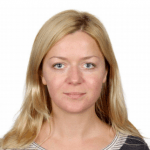
Anna Orlova
Anna Orlova (Russian Federation) is a Researcher at the Cooperation and Development Network Eastern Europe (CDN). She also participates in the Working Group for the Amazon Digital Radio HF Network (UNESP). Anna obtained her BA in Psychology and MA in Sociology (European Societies) from the Saint-Petersburg State University. She recently joined the Free and Open Source Software (FOSS) Initiative of CDN where she is focused on dissemination and education about digital rights and open source culture and technology in Eastern European countries. Her interests are education and advocacy of digital rights for young people, community networks and access, and online harassment and discrimination.
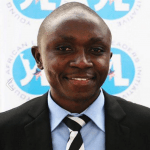
Arsene Tungali
Arsene Tungali (Democratic Republic of Congo) is a Mandela Washington Fellow, and has been engaged with UNICEF, AfriNIC, ICANN, Central Africa IGF Organizing Committee, and DiploFoundation. Arsene holds a BSc in Agricultural Studies from Université de Goma as well as a number of certificates in Internet governance and civic leadership. He has been working with the ITU on their Girls in ICT Day and Child Online Protection (COP) initiatives for the last 3 years. Arsene specializes in child online protection, Internet governance, and capacity building. He is presently the Co-Coordinator of the Internet Governance Caucus (IGC).

Ashell Forde
Ashell Forde (Barbados) is a Senior Telecoms Officer at the Telecoms Unit (national regulator). She has been active in the deployment of the Barbados IXP, as well as the setting up of the national CSIRT. Ashell holds a BSc in Computer Science and Electronics from the University of the West Indies, has qualified with City & Guilds in Microcomputer Technology, and possesses a number of industry certifications in ethical hacking, routing & switching, and information security. She has also attended USTTI training on a number of occasions, completed cybersecurity war games with the ITU and OAS, and is the Founder of the non-profit group ’No! to Online Abuse and Harassment (NOAH)’.

Chenai Chair
Chenai Chair (Zimbabwe) is a Researcher / Communications and Evaluations Advisor with Research ICT Africa, a non-profit think tank based in Cape Town, South Africa. She currently works on Research ICT Africa’s mobile pricing indices, Internet access and user issues focused on youth and gender, as well Internet governance. Chenai participated in the 2015 Africa School for Internet Governance (AfriSIG). Her areas of passion and interest are gender and youth issues in policy spaces, Internet rights and developing demand side awareness for optimal Internet.

Dirgayuza Setiawan
Dirgayuza Setiawan (Indonesia) is a Student / Researcher at the Oxford Internet Institute (OII). His current research and policy interest is in online age verification for the purpose of keeping young users away from unintentional exposure to pornography and other age-inappropriate content. He obtained his BA in Media Communication and Political Science from the University of Melbourne and is currently working on the MSc in Social Science of the Internet.
Dirgayuza has authored a number of books to help Indonesians be more productive online, and has lectured on Internet governance at several universities.

Elvin Prasad
Elvin Prasad (Fiji) works as a Senior ICT Engineer in the Ministry of Communications. He is also the ICANN Government Advisory Committee (GAC) Representative for his country. Elvin holds a BSc in Engineering & Computer Science and a MSc in Information Systems. His present interests are Internet of Things (IoT), IPv6, privacy, and cybersecurity, and he hopes to use the experienced gained at the global IGF to assist him in setting up Fiji’s CSIRT and to deliver the first national IGF in the country.
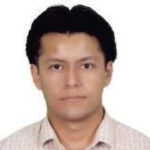
Humberto Arthos
Humberto Arthos (Ecuador) is the Projects Director at Usuarios Digitales del Ecuador where he advocates for the freedom to exercise your rights on digital platforms. His background is mechanical engineering and drilling, but in recent years he is working in the areas of cloud computing, communications networks, and monitoring & controls systems. He is looking forward to participating in IGF Guadalajara and being engaged and involved in discussions on digital rights, cybersecurity and the Internet of Things (IoT).
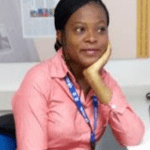
Ivy Hoetu
Ivy Hoetu (Ghana) works for the National Communications Authority (NCA) as an Engineering Officer. In this role, she monitors the frequency spectrum bands allocated to the various communications services providers in the country to ensure that interference is minimized. She also volunteers her time providing technical facilitation for ICT training courses. Ivy previously worked as the Managed Networks Supervisor for one of the largest ISPs in Ghana and was a Cisco Networking Academy Instructor at the Ghana-India Kofi Annan Center of Excellence in ICT (AITI-KACE).
She presently contributes to the work of the Infrastructure and Open Access Working Group of the Alliance for Affordable Internet (A4AI), Ghana IGF, and the ISOC Ghana Chapter.
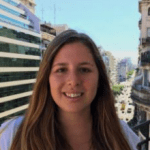
Jeannette Torrez
Jeannette Torrez (Argentina) is a Researcher in the privacy and freedom of expression areas of Asociación por los Derechos Civiles (ADC) in Buenos Aires, Argentina. She holds a degree in Sociology and participates in research groups at the University of Buenos Aires in the area of Urban Sociology. Jeannette oversees a number of projects that analyze the actual challenges to freedom of expression in the digital realm across South America. Her passion is monitoring and reporting on issues related to freedom of expression and privacy in order to build a stronger democracy in Argentina. She’s also interested in gender issues and female empowerment.

Jevgenija Voronko
Jevgenija Voronko (Belarus) is a Public Relations Manager for the Registry of Belarusian domains .BY and .БЕЛ (.BEL) She is also the Secretary of the Belarus IGF and was part of the organizing team for the first Belarus national IGF that was attended by more than 300 representatives from government, business and civil society. She is committed to providing better opportunities for the Internet users in her country by developing the Belarus domain zone in accordance with the principles of a stable, secure and open Internet.
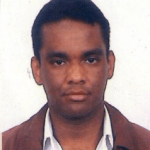
Jose Mendoza
Jose Mendoza (Venezuela) is a Legal Consultant at Fundacion Acceso Libre (Foundation for Free Access). He is also an Independent Researcher focused on publishing articles that emphasize the importance of the Internet as a means for the realization of human rights, and maintaining Internet governed under ethical principles. Jose obtained his legal qualifications from the University of Carabobo and completed his MSc in Political Science at the Simon Bolivar University. The topics that most interest him are public policy, net neutrality, and open access.

Khushboo Khanna
Khushboo Khanna (India) is currently pursuing a double Masters degree in Global Media and Communications from the London School of Economics & Political Science (United Kingdom) and the Fudan School of Journalism (China). She obtained her BA in Mass Media from the University of Mumbai with a specialization in Journalism. Her interests are human rights and the Internet, data protection, and open data.

Mamothokoane Tlali
Mamothokoane Tlali (Lesotho) is a Manager at the Lesotho Network Information Centre (LsNIC), which is a non-profit organization formed by the national telecommunications regulator to oversee ccTLD operations and to promote Internet access and ICT penetration in the country. Prior to that, she was an IP Systems Engineer at Vodacom Lesotho where she worked on core routing and IP backbone services. She developed her interest in Internet governance after having participated in the 2015 Africa School for Internet Governance (AfriSIG). She is currently in the processing of setting up a local ISOC chapter and establishing a local Network Operators Group (NOG). She hopes to use the experience gained at the global IGF in Guadalajara to deliver the first Lesotho national IGF.

Michael Oghia
Michael J. Oghia (United States) is a Belgrade-based Internet governance Consultant and Editor. He is currently the Communications Manager of IGMENA, a program operated by Hivos, and works with DiploFoundation as Assistant Curator for the Geneva Internet Platform (GIP). He is actively involved in regional IGF initiatives, such as the Southeastern European Dialogue on Internet governance (SEEDIG) and the European Dialogue on Internet Governance (EuroDIG). He has attended the 2016 EuroDIG New Media Summer School and the 2016 Annenberg-Oxford Media Policy Summer Institute. Michael holds a MA in Sociology from the American University of Beirut and a BSc in Sociology from the University of Louisville.

Sonia Herring
Sonia Herring (Turkey) is a Magazine Editor, Social Media Manager and Civil Society Activist from İstanbul. She has been involved in the Internet governance community for the past year as a Youth Delegate in the ‘Youth Leadership in Internet Governance’ initiative of the Network of European Digital Youth. She has attended a number of national and regional IGFs as a participant and speaker, and recently participated in the 2016 Middle East and Adjoining Countries (MEAC) School on Internet Governance. Sonia is one of the organizing members of the Turkish Youth IGF, a member of ISOC’s Turkey Chapter and an Assistant Curator for the DiploFoundation’s Geneva Internet Platform Digital Watch Observatory.

Victor Ramos
Victor Ramos (Venezuela) is Founding Member and Director of Generacion en Red. He is currently pursuing a Bachelor’s Degree in Psychology. at the Universidad Central de Venezuela. Victor is involved with TEDxMetropolitanCaracas where discussions will center around Internet access, freedom of information, citizen participation and transparency. He is also currently in discussions with the Commission on Science and Technology of the National Assembly of Venezuela around the development of an online e-participation platform for the general public to discuss new legislation in the country.
The topics that particularly appeal to him are ICTs for development (ICT4D), democracy and citizen participation, free and open source software (FOSS), and human rights.
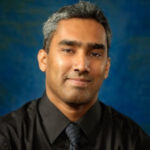
Victor Ryan Biran
Victor Ryan Biran (Trinidad and Tobago) is a Team Leader at the National Information and Communication Technology Co. Ltd. (iGovTT). He holds a BSc in Computing & Information Systems, a MSc in Telecoms Regulation & Policy, and a MBA. He is also a past recipient of the Commonwealth Professional Fellowship and Hubert H. Humphrey Fellowship. Ryan has a deep background in ICTs and over the years has worked in policymaking, telecoms strategy, project management, and ICT standardization. His main interests are net neutrality, open data, OTT services, and cybersecurity.

Yolanda Mlonzi
Yolanda Mlonzi (South Africa) is a Student at the University of Witwatersrand studying towards a degree in Media Studies. In 2015, she was was a Google Policy Fellow (Africa), and it was through this fellowship that she gained a deeper understanding of pertinent issues related to Internet governance. Subsequently, she worked for the Association for Progressive Communications (APC) assisting with their policy work across the African continent. She is a graduate of the 2015 African School on Internet Governance (AfriSIG). Her interests are ICTs for development (ICT4D), multistakeholderism, gender issues, and human rights and the Internet.
2015 IGF Ambassadors

Agustina Callegari
Agustina Callegari (Argentina) specializes in political communication for the digital age. She is very involved in work related to privacy and data protection, freedom of expression, and Internet governance. She is a former NextGen@ICANN Fellow, and a current LACIGF Fellow. Agustina holds a BA in Communication Science from Buenos Aires University and a Post-Graduate Diploma in Data Protection from the Latin American University (FLACSO).
Most recently, she has been collaborating with the Annenberg School for Communication at the University of Pennsylvania on a UNESCO research project about licensing and registration regimes for online content. Agustina is also a past participant in the NGL e-Learning course.

Amanda Soares Kemmer
Amanda Soares Kemmer (Brazil) is an Attorney-at-Law specializing in cyberlaw, copyright law, international trade law, and tax law. She is also currently a Researcher attached to the Centre for Intellectual Property Policy & Management at Bournemouth University. Amanda holds a LLB from the Catholic University of Paraná and a LLM in International Tax Law from Bournemouth University. She is very interested in digital rights, and particularly in the Marco Civil da Internet legislation in Brazil.

Ana Kakalashvili
Ana Kakalashvili (Georgia) works for the U.S. Peace Corps in the area of security and safety. She has participated in meetings of ICANN, RIPE NCC, and EuroDIG. She holds a LLB from the Tbilisi State University, and is currently working on organizing the inaugural Georgian National IGF Meeting. She is a former Fellow to RIPE NCC and a former ICANN Fellow. Ana is very interested in multistakeholder models of governance, online privacy and security, and copyright regulation in the digital era.

Argyro Karanasiou
Argyro Karanasiou (Greece) is a Lecturer at Bournemouth University, and specializes in intellectual property in the digital economy, media law, IoT, privacy by design, and big data. She holds a LLB and a LLM in Public Policy & Politics from the National Kapodistrian University of Athens, and a PhD in Law from the University of Leeds. Argyro is currently involved with the Dynamic Coalition on Freedom of Expression and Freedom of the Media on the Internet and the Dynamic Coalition on Internet Rights and Principles. She is a former ISOC Ambassador to the IGF, and has recently been named as an Ambassador for the Information and Privacy Commissioner in Ontario, Canada.

Arsene Tungali
Arsene Tungali (Democratic Republic of Congo) is a Mandela Washington Fellow, and has been engaged with UNICEF, AfriNIC, ICANN, Central Africa IGF Organizing Committee, and DiploFoundation. Arsene holds a BSc in Agricultural Studies from Université de Goma as well as a number of certificates in Internet governance and civic leadership. He has been working with the ITU on their Girls in ICT Day and Child Online Protection (COP) initiatives for the last 3 years. Arsene specializes in child online protection, Internet governance, and capacity building. He is presently the Co-Coordinator of the Internet Governance Caucus (IGC).

Ashell Forde
Ashell Forde (Barbados) is a Senior Telecoms Officer at the Telecoms Unit (national regulator). She has been active in the deployment of the Barbados IXP, as well as the setting up of the national CSIRT. Ashell holds a BSc in Computer Science and Electronics from the University of the West Indies, has qualified with City & Guilds in Microcomputer Technology, and possesses a number of industry certifications in ethical hacking, routing & switching, and information security. She has also attended USTTI training on a number of occasions, completed cybersecurity war games with the ITU and OAS, and is the Founder of the non-profit group ’No! to Online Abuse and Harassment (NOAH)’.

Elsa Saade
Elsa Saade (Lebanon) is a social and political activist working in the fields of humanitarian assistance and capacity building. She holds a Bachelor’s degree in International Affairs and Political Science from the Lebanese American University in Byblos. Elsa has a solid belief in the enormous potential of youth in her country.
She has been active in Lebanese civil society movements, engaging in campaigns specifically related to women’s rights, war reconciliation, observing elections, youth leadership, and peace building.
She has been involved with the Gulf Human Rights Center and the Arab IGF, and is also a former ICANN Fellow.

Encel Sanchez
Encel Sanchez (Venezuela) is a student at the University of The Andes – Mérida, Venezuela, studying systems engineering. His areas of competency are web development, social media, security and privacy, and open source. The IGF topics that are of primary interest include access and diversity, security and privacy.
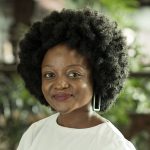
Evelyn Namara
Evelyn joined the Internet Society in 2017 as the Policy Outreach Fellow. In her new role she will join the global policy team and work closely on policy work related to access and human rights. She will also work on supporting the Internet Society’s communications campaign as well as focus on special initiatives including the Internet Society’s 25th Anniversary.
Most recently Evelyn co-founded !nnovate Uganda, a 2017 World Summit Award Winning program to design and implement technology solutions for local development needs like m-vouchers for the agricultural sector. In her previous roles, she was also Country Director of Solar Sister, a social enterprise that seeks to eradicate energy poverty by empowering women with economic opportunity. Evelyn was an Internet Society ambassador to the IGF in Brazil as well as a returning ISOC ambassador to the IGF in Mexico. Evelyn is passionate about human rights, women & tech and about the power of the Internet to change lives.
She is based in Kampala, Uganda.

Grace L.N Mutung’u
Grace L N Mutung’u (Bomu) is a young Kenyan ICT lawyer. She works for a theatre company, Fanartics Limited as a public relations, communications and legal officer. Since 2005 she has served as the secretary of the Kenya ICT Consumers Association which is an organisation advocating for consumer empowerment in the ICT sector. She is a Diplo 2009 Internet Governance Capacity Building Programme alumni.
Grace has a passion for politics and youth empowerment and has participated in many initiatives on the same through groups such as the Pioneers for Change (Kenya) and the Africa Youth Trust.
She is currently participating in the ISOC /Diplo Foundation Next Generation Leaders Programme and looks forward to a more connected world where Internet rights are upheld.
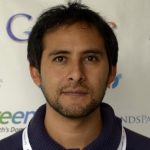
José Eduardo Rojas
José Eduardo Rojas (Bolivia) is the CEO of REDES Foundation, where he leads country-specific efforts in Internet policy and development. He is a Vice President at the ISOC Bolivia Chapter, and a member of the organizing committee for the Bolivia IGF. Eduardo was responsible for the design of the national strategy of ICTs for Development (ICT4D) in Bolivia, and was also instrumental in the development of the Telecommunications Act (Bolivia) and the underlying model for telecoms regulation.
He is the former Head of Planning Agency for the Development of the Information Society in Bolivia. José is a former ICANN Fellow.

Kasek Galgal
Kasek Galgal (Papua New Guinea) is a Lecturer at the University of Papua New Guinea. His work is focused on cybersecurity, free and open source software (FOSS), and network development. He is a former APNIC Fellow and is active in local and regional Internet governance efforts. He is an active member of the Pacific Island chapter of the Internet Society (PICISOC), is very passionate about ICTs for development (ICT4D), education and bridging the digital divide.
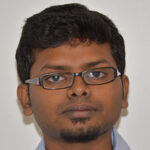
Krishna Kumar Rajamannar
Krishna Kumar Rajamannar (India) is a Student, and is completing his MA in Public Policy (specializing in Internet Governance) at the Hertie School of Governance in Berlin. Prior to this, he worked for the Omnicom Media Group as a New Media Planner. He currently serves as the Secretary for the Internet Society Chennai Chapter. Krishna was selected as a Fellow to ICANN 51 and ICANN 53, and is also an alumni of the NGL e-Learning programme. Krishna is passionate about keeping the Internet open and accessible for all, and is keenly interested in better understanding the societal impact of the Internet on various global communities.
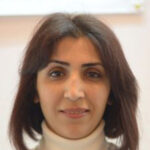
Lianna Galstyan
Lianna Galstyan (Armenia) is the Public Relations Manager for ISOC Armenia and the Head of the ISOC Armenia At-Large Structure in ICANN. Lianna has been a Member of ISOC Armenia since 2000 and a Board Member since 2013. She has also been an ICANN Fellow on a number of occasions. Lianna has been actively involved as speaker, presenter, and workshop organizer at EuroDIG, APrIGF, Russian IGF (RIGF), and the Ukrainian IGF. She is also a Member of the Executive Committee of SEEDIG (South Eastern European Dialogue on Internet Governance) and a Member of the Executive Committee overseeing the preparatory activities for the first Armenian IGF (ArmIGF).

Maureen Hernandez
Maureen Hernandez (Venezuela) is a System Engineer who specializes in free and open source software (FOSS) and web security. She is also a human rights activist interested in online freedom. She is currently working on TV white spaces as an technical opportunity for bridging the digital divide. She has participated in the ISOC NGL e-Learning programme, and has been previous selected as a Fellow to the IETF. She is eager to continue to develop her technical capabilities as well as enhance her involvement in policy development.

Michael Oghia
Michael J. Oghia (United States) is a Belgrade-based Internet governance Consultant and Editor. He is currently the Communications Manager of IGMENA, a program operated by Hivos, and works with DiploFoundation as Assistant Curator for the Geneva Internet Platform (GIP). He is actively involved in regional IGF initiatives, such as the Southeastern European Dialogue on Internet governance (SEEDIG) and the European Dialogue on Internet Governance (EuroDIG).
He has attended the 2016 EuroDIG New Media Summer School and the 2016 Annenberg-Oxford Media Policy Summer Institute. Michael holds a MA in Sociology from the American University of Beirut and a BSc in Sociology from the University of Louisville.

Mohit Saraswat
Mohit Saraswat (United Arab Emirates) is the Senior Manager – IT Infrastructure at Pepsico (UAE). He specializes in telecoms engineering, cybersecurity, child online safety, and Internet governance. He currently serves on the Research and Academics Development Committee of the Information Systems Audit and Control Association (ISACA) UAE Chapter, and is a Founding Member of the ISOC UAE Chapter. Mohit has previously been participated in the Arab Regional INET and the ISOC Middle East Chapter Workshop. He is a past participant in the NGL e-Learning course.
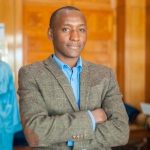
Mwendwa Kivuva
Mwendwa Kivuva (Kenya) is a Policy Fellow at Google, and also volunteers his time working on policy formulation for ICANN and AFRINIC. He previously worked as the Senior Network Administrator at the University of Nairobi where he oversaw a project to transition the IP addressing schema for an 18-campus WAN network from IPv4 to IPv6. Mwendwa holds a BSc in Computer Science from the Catholic University of Eastern African and a MSc in Distributed Computing Technology from the University of Nairobi.
He has represented AFRINIC on the Consolidated Regional Internet Registry IANA Stewardship Proposal (CRISP) team. Mwendwa is a past IETF Fellow and IGF Ambassador.

Paola Pérez
Paola Pérez (Venezuela) is the Vice-President of the ISOC Venezuelan Chapter and the Chair of the LACNIC Public Policy Forum. She is also a human rights activist for the Network of Citizen Activists (REDAC), Chief Executive Officer of the non-profit foundation ‘Lids for Life’, and a member of the IT Women Working Group in LACNIC. Her interests are online censorship, mass surveillance, net neutrality, access, infrastructure, IoT, freedom of expression and association, gender issues and the Internet, and sexual exploitation online. Paola is a former Google Fellow and a Returning IGF Ambassador.

Shreedeep Rayamajhi
Shreedeep Rayamajhi (Nepal) is a Nepalese social activist and blogger. He is also the Managing Director of RayZnews.com, an online news portal and blog, and has been featured on BBC Outriders and the World Bank’s Provocative Voices. He is one of the Founding Members of the ISOC Nepal Chapter, and currently serves as a Member of the Steering Group for the Asia Pacific Regional Internet Governance Forum (APrIGF). Shreedeep is passionate about the Internet and Human Rights, online activism, and building awareness on the Internet-related issues that affect the masses.

Suprita Lnu
Suprita Lnu (India) is currently employed as a Network Planning and Design Engineer at Reliance JIO Infocomm Limited in India. She is part of team working towards launching 4G mobile services across India. In this role, she is working on deploying MPLS for LTE backhaul and FTTx services, deploying OSS tools and automation, and providing first-hand analysis on IPoDWDM, NFV, and SDN. Suprita is passionate about delivering next generation networks (NGNs) and services that contribute to wide scale development in her country.
She is involved in the BGP, ISIS, OSPF, and MPLS working groups at the IETF. Suprita is very eager to develop competencies in Internet governance and policy, and use them in conjunction with her technical skills to contribute to human, social, and economic development in India.
2014 IGF Ambassadors

Alexandra Permyakova
Alexandra Permyakova is the Digital Marketing Manager at LLS Rambler Internet Holdings. She holds a Bachelors degree in Applied Informatics from Moscow State University of Railway Engineering, and is currently working towards her Masters degree in Electronic Business at the National Research University Higher School of Economics in Moscow. She has participated in previous EuroDIG meetings, and is keen on becoming more deeply involved in the areas of Internet and Human Rights and ICT Policy.

Ankush Bagotra
Ankush Bagotra is a Senior R&D Engineer with Synopsys Inc. He holds a Bachelors degree in Computer Science and specializes in Security & Privacy, Big Data, Cloud Computing, and Intellectual Property Rights. He is a member of the IPv6 Task Force setup by the Government of India, and works specifically to provide guidance to the public sector and local industry on IPv6 transition and related issues.
Ankush is also involved with APNIC conducting hands-on workshops on IPv6. He also consults on planning scalable architectures to serve Indian engineering colleges in delivering education via the Internet without setting up physical laboratories.

Carlos Raul Gutierrez
Carlos Raul Gutierrez is the President of the ISOC Costa Rica chapter. He holds a Masters in Public Administration from Harvard University. Carlos has been involved in Internet governance for over 5 years, mainly from the perspective of local regulatory issues and participating in ICANNs Governmental Advisory Committee (GAC). He now represents the chapter as an organizational member of the Non-Commercial Stakeholder Group (NCSG) of the ICANN GNSO.
His background is economics and management, and he has a strong interest in energy, climate change and universal access to the Internet.

Fedor Smirnov
Fedor Smirnov is currently a Board Member and Secretary of the Russian Federation ISOC Chapter. Fedor has 8+ years of experience on the domain names & hosting market and since 2012 works as the Chief Marketing Officer at Webnames.ru, an accredited ICANN registrar. He holds a Ph.D. in Linguistics and Bachelors of Arts degrees in German/English Philosophy and Financial Management respectively.
Besides DNS and Internet Infrastructure, Fedor’s areas of interest are cybersecurity, ICT policy, Internet and Human Rights, and the Information Society. In 2014 he was granted an ISOC Ambassadorship to attend the Internet Governance Forum in Istanbul.

George V. Salama
George Victor Salama, an Italian – Egyptian national joined SAMENA Telecommunications Council in July 2011 as Senior Manager – Public Policy and has since then been involved in setting up a policy plan that includes: Digital Dividend, Spectrum Harmonization and Efficiencies, Broadband Infrastructure Development, Global Roaming Quality, Sustainable Internet Business Model, Internet Governance, Net Neutrality, Public Private Partnership and ICT Policy.
In addition, George has played a lead role in facilitating consensus between the Council’s Regulatory Committee and International Roaming Group, drafting various policy related documents, and is in constant contact with all the council’s operator members, policy makers, regulators, vendors, consultants, regional and international organizations (i.e. ITU, GSMA, ETNO, ICANN) associated with recent regulatory and policy updates. He is also very active on committees and work groups bringing in new members.
Prior to joining SAMENA Council, George spent over six years at Egypt’s National Telecom Regulatory Authority, joining the Information Technology Department – Software Development Unit in 2005 followed by a career altering change in 2007 when he joined the International Technical Coordination Department – Internet Policy Unit and was in charge of in Internet public policies issues on a national and international level. He was also part of the official Egyptian delegation attending the Internet Governance Forum meetings in Rio de Janeiro (2007), Hyderabad (2008), Sharm El Sheik (2009), and Vilnius (2010). In addition, George was involved on setting up the Egyptian IDN ccTLD Registry. Early in the process, he was responsible for preparing documentation needed for the delegation request for IANA. Later on, he was part of the team working on setting up the registry-registrar model including required licenses, formulating necessary policies and regulations, identifying marketing strategies, and raising community awareness. Moreover, George was part of the team setting up Egypt’s National Broadband Strategy (e-Masr) comprising coordination with World Bank for consultations, bringing together telecom market players, set goals and objectives on short and long terms , and deeply analysing the market’s needs, targets, required investments, GAP analysis, and solutions development.
After completing his Bachelor of Science, majoring in Computer Science and minoring in Electronics from The American University in Cairo – AUC, George completed his Masters of Science degree in Business Information Technology from Middlesex University – UK in 2008 and is currently a part-time PhD researcher with Tampere University, Finland and is pursuing his thesis on “Internet Governance – Towards a Truly Multilingual Internet”.
A big fan of social media, George has been involved in various projects aiming to engage the community through digital channels. He is also an avid traveller and has visited many countries in the Middle East and Africa, Europe, Asia and America.

Ivan R. Mendez
Ivan R. Mendez is a Journalist and works in digital media across Latin America. In 2000, he created a website called “Cyberanalitica” which was used to broadly engage the populace in discussing cyber-culture. He currently runs another website called “Opinion y Noticias” where he writes about technology, society and politics. He has co-authored the book “10 Years of Digital Journalism in Venezuela”. He is passionate about the Internet and human rights and is looking forward to continuing his advocacy in this area.
Ivan is currently participating in the Next Generation Leaders moderated e-Learning course “Shaping the Internet – History and Futures”.
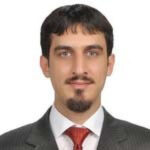
Mehmet Bedii Kaya
Mehmet Bedii Kaya is a Lecturer at the Istanbul Bilgi University IT Law Institute (the only IT Law institute in Turkey), where he delivers post-graduate lectures on Internet law and Internet governance. He holds a LLM in Internet Law from Istanbul Bilgi University and a Ph.D. from the University of Nottingham. Mehmet also works closely with the Turkish Internet Development Board, which is a multi-stakeholder forum for developing the Turkish Internet policies and strategies.
His main interests are Internet content regulations and multi-stakeholder governance. He is passionate about enhancing the participation of Internet stakeholders (in particular individual Internet users or collectively as NGOs) into decision-making processes related to Internet policies and strategies.
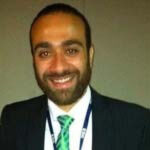
Sergio Alves
Sergio Alves Jr. is a Researcher in Internet Governance at the Berkman Center of Internet and Society at Harvard University. He holds a Bachelors in Law and a Masters in Regulation (Cybersecurity & Telecom Regulation) from Universidade de Brasilia. He has represented Brazil at several ITU, Citel, Mercosur, and other bilateral meetings/conferences, mostly handling cybersecurity and Internet governance issues. He is currently in the process of transitioning back to Brazil to work with the telecommunications regulator Anatel.
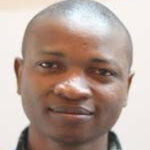
Seun Ojedeji
Seun Ojedeji works as a Network Engineer at the Federal University Oye-Ekiti in Nigeria. He holds a BSc in Computer Science from the University of Ilorin, and also possesses a number of industry certifications from Cisco, Juniper, and Microsoft. Seun has contributed to Internet development in the African region through actively participating in Internet governance related activities and meetings such as the AfIGF, WAIGF, AfNOG, NgNOG, and AfriNIC.
Seun is the Co-Chair of the AfriNIC Policy Development Working Group, and a Council and Executive Member of the Free and Open Source Software Foundation for Africa (FOSSFA). Seun is a Next Generation Leaders alumni, having completed the moderated e-Learning course “Shaping the Internet – History and Futures”.

Shreedeep Rayamajhi
Shreedeep Rayamajhi (Nepal) is a Nepalese social activist and blogger. He is also the Managing Director of RayZnews.com, an online news portal and blog, and has been featured on BBC Outriders and the World Bank’s Provocative Voices. He is one of the Founding Members of the ISOC Nepal Chapter, and currently serves as a Member of the Steering Group for the Asia Pacific Regional Internet Governance Forum (APrIGF). Shreedeep is passionate about the Internet and Human Rights, online activism, and building awareness on the Internet-related issues that affect the masses.

Towela Nyirenda-Jere
Towela Nyirenda-Jere is the Programme Manager in the e-Africa Programme at the NEPAD Planning and Coordinating Agency. Towela holds both MSc. and Ph.D. in Electrical Engineering from the University of Kansas. She is based in South Africa, and over the last 3 – 4 years has been working on ICT strategy/policy and Internet governance issues through various projects. She has been key in the establishment of the Southern Africa IGF, the formulation of national IGFs in the SADC region (recently launched local IGFs in Malawi and Mozambique), the creation of the Africa School on Internet Governance, and the development of a comprehensive ICT Strategy for Africa to name a few.
Towela is an ISOC Next Generation Leaders alumni, having participated in one of the first cohorts of the moderated e-Learning course “Shaping the Internet – History and Futures”.

Ysabel Briceno
Ysabel Briceno is a Journalist and University Researcher. She holds a Masters in Political Science and is currently working on her Ph.D. in Human Sciences. Ysabel has been involved with the Center for Scientific Computing of the University of Los Andes for a number of years, specifically in researching Internet governance issues. She is a visiting professor at several universities and also consults with Open Access (LA Referencia) and Distributed Computing (GISELA). She is very interested in media-democracy relationships and the challenges of collaborative, open science and the use of Internet.
Ysabel is currently participating in the Next Generation Leaders moderated e-Learning course “Shaping the Internet – History and Futures”.
2013 IGF Ambassadors

Alejandro Acosta
Alejandro Acosta (Venezuela) is currently Technology Support Manager at British Telecom (BT). He is a member of LACNIC’s Electoral Commission and President of LAC-TF (the IPv6 Task Force). He coordinates the annual meeting of the Latin American IPv6 Forum and moderates the Latin American IPv6 Task Force mailing list. He also is Professor of TCP/IP at the Nueva Esparta University, a course for 9th semester students. Alejandro is a member of LACNIC, IETF.

Andrés Azpúrua
Andrés Azpúrua (Venezuela) is the Director/Co-Founder at Venezuela Inteligente, an organization that develops and facilitates technology tools for civic engagement. He completed his Diploma in Leadership and Public Policy at IESA, UCAB, Fundación Futuro Presente in Caracas, Venezuela. Andrés is an Internet Freedom Fellow with interests in the areas of human rights, access and diversity and IG4D (Internet Governance for development).

Anupam Agrawal
Anupam Agrawal has a long involvement with the Indian Internet community. He is the founding chair of the ISOC India Kolkata Chapter and is leading a Special Interest Group on Data Insurance in Data Security Council of India Kolkata Chapter. The SIG is working on various aspects of Data Insurance like creation of models, discussing and coordinating with various regulatory agencies and Insurance Companies.
Educated as a Chartered Accountant & Certified Information System Auditor his work as a functional consultant in Tata Consultancy Services Ltd. relates to development of financial information systems hovering around Internet technologies. He strongly believes that Information Technology is the only way through which India as a country can fight basic issues like corruption & ill-literacy and Internet is the medium through which it can connect with the masses. As part of ISOC Kolkata Chapter he is focusing on local issues of internet connectivity and Online Safety of Children and his current field of study is Multi Stakeholder approach of Internet Governance.

Argyro Karanasiou
Argyro Karanasiou (Greece) is a Lecturer at Bournemouth University, and specializes in intellectual property in the digital economy, media law, IoT, privacy by design, and big data. She holds a LLB and a LLM in Public Policy & Politics from the National Kapodistrian University of Athens, and a PhD in Law from the University of Leeds.
Argyro is currently involved with the Dynamic Coalition on Freedom of Expression and Freedom of the Media on the Internet and the Dynamic Coalition on Internet Rights and Principles. She is a former ISOC Ambassador to the IGF, and has recently been named as an Ambassador for the Information and Privacy Commissioner in Ontario, Canada.

Cecilia Bermudez
Cecilia Bermudez (Venezuela) is currently studying systems engineering at the Universidad de los Andes (ULA) in Merida, Venezuela, where she is also a Teaching Assistant in the field of Computational Systems. Her topics of interest are access and diversity, critical Internet resources and security and privacy.

Cintra Sooknanan
Cintra Sooknanan is Chair of the Trinidad & Tobago chapter of the Internet Society, as well as their attorney. She has been working for ICT non-profits in the country for the last ten years, and is involved with ICANN’s At-Large Advisory Committee (ALAC) which is responsible for considering and providing advice on the activities of the ICANN, as they relate to the interests of individual Internet users.
She has also named as Community Member Representative of the SARP program for community and needy gTLD applicants.
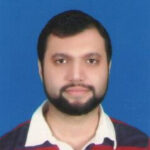
Fawaz Bokhari
Fawaz Bokhari (Pakistan) from Lahore is an Assistant Professor at the Punjab University College of Information Technology (P.U.C.I.T). His research interests include computer networks and distributed and cloud computing. Currently, he is working on designing efficient communication protocols (transport and network layer) for data centers. He also teaches an introductory level cloud computing course to graduate students.

Filiz Yilmaz
Filiz Yilmaz (Turkey) is an Internet Governance & Policy Consultant. She has extensive work experience in the Internet industry in roles specific to resource management, policy, engagement, participation and strategic communications. She is the former Senior Director of Participation and Engagement at ICANN, and is currently the Programme Committee Chair at RIPE NCC. She is also a Founding Member of the ISOC Turkey Chapter.

May-Ann Lim
May-Ann Lim (Singapore) currently works as the Research Director at TRPC. Her career has spanned a number of regional and global institutions, including the World Bank, the Singapore Institute of International Affairs, and the Singapore Internet Project. Her interests include telecommunication networks and ICT policy, new media and communications, technology developments and applications, mobile platforms, disaster relief and development work in universal education, and access to finance.

Mwendwa Kivuva
Mwendwa Kivuva (Kenya) is a Policy Fellow at Google, and also volunteers his time working on policy formulation for ICANN and AFRINIC. He previously worked as the Senior Network Administrator at the University of Nairobi where he oversaw a project to transition the IP addressing schema for an 18-campus WAN network from IPv4 to IPv6.
Mwendwa holds a BSc in Computer Science from the Catholic University of Eastern African and a MSc in Distributed Computing Technology from the University of Nairobi. He has represented AFRINIC on the Consolidated Regional Internet Registry IANA Stewardship Proposal (CRISP) team. Mwendwa is a past IETF Fellow and IGF Ambassador.

Nabil Benamar
Nabil Benamar (Morocco) works as a Professor of Computer Science at the Moulay Ismail University. He holds a Master’s degree in Computer Networks and a PhD in Computer Science from the Moulay Ismail University. Nabil has extensive experience in IPv6, DNS, security and privacy, open source culture, and networking.

Natalia Enciso
Natalia Enciso (Paraguay) is an Attorney-at-Law and a Professor at the Universidad Autónoma de Asunción (UAA). Her work is concentrated in the areas of online trust and identity, e-Commerce, e-Government, data protection, and mediation.
Ms. Enciso is especially interested in human rights and exploring how proposed legislations such as SOPA, PIPA, and CISPA relate to censorship and freedom of expression.
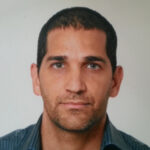
Nicolas Caballero
Nicolas Caballero (Paraguay) is the Vice President of Omnia S.A. He completed his Bachelor of Science degree in Computer Science at the Universidad Autónoma de Asunción, Paraguay, specializing in Networking and the Internet. He is currently the Paraguay representative to the ICANN Governmental Advisory Committee (GAC). Mr. Caballero is very interested in the areas of access and diversity, critical Internet resources, openness and security, and IG4D (Internet governance for development).

Oswaldo Cali
Oswaldo Cali (Venezuela) is a Lawyer specializing in human rights, and is currently an Officer of the Promotion, Defense and Public Action Program. His work is predominantly in the field of freedom of expression, and he carries out studies of legislation and policies in Venezuela and participates in related national and international campaigns. He graduated from the Universidad Metropolitana in Caracas, Venezuela with an Abogado (Juris Doctor equivalent).
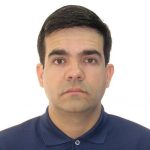
Raitme Citterio
Raitme Citterio (Venezuela) is a computer engineer and graduate from UCLA – University Lisandro Alvarado. His specialty is management and development of knowledge and learning communities online. As a consultant in the area of e-Learning, he works on issues of regional leadership and building capacity for the region. He is a member of the Royal Venezuela – Graduates of training programs in Latin America-Caribbean international cooperation programs of the Federal Ministry for Economic Cooperation and Development (BMZ).

Roxana Radu
Dr. Roxana Radu is the Chair of Internet Society – Switzerland since 2016. In this capacity, she leads the engagement of the chapter on Internet-related policy developments at the national level. Roxana has worked on Internet governance and digital policy for over 7 years and has been awarded the Swiss Network for International Studies Award 2017 (SNIS) for her PhD thesis, Global Rules for Emerging Issue Domains: Negotiating the Governance of the Internet, defended at the Graduate Institute of International and Development Studies in September 2016. Her research and publications focus on international governance and global Internet policymaking.

Sarah Kiden
Sarah Kiden (Uganda) is currently a Ford-Mozilla Open Web Fellow hosted by Research ICT Africa in Cape Town, South Africa. She is working on an Internet measurements project, focusing on broadband performance, and Internet peering and users’ behaviour in some countries in Africa. Sarah possesses a technical background in networks and systems administration through her previous employment as Head of Systems at Uganda Christian University. She holds a Master of Science in Information Systems, and has worked mostly in research and education networks.
Sarah is involved with the ISOC Uganda Chapter and in ICANN as the Secretary of the African Regional At-Large Organization (AFRALO) which represents the interests of end users.

Sergey Ovcharenko
Sergey Ovcharenko (Russian Federation) is a Trainee Researcher at the Joint Supercomputer Center of the Russian Academy of Science. He is also the Director for .SU Domain Development at the Foundation for Internet Development in Moscow. He holds a BSc in Applied Physics and Mathematics and an MSc in Mathematical and Information Technology from the Moscow Institute of Physics and Technology. His work experience is in the areas of ccTLD management, embedded systems development and network security research.

Sheba Mohammid
Sheba Mohammid (Trinidad & Tobago) is a multidisciplinary Internet professional with a background that includes experience working in digital inclusion, ICT policy and strategy, sustainable development, Internet governance, e-Learning and behavioral science of cyberspace. She is a Commonwealth Fellow and an African Caribbean and Pacific (ACP) Fellow to the IGF. Sheba is currently the Director of Policy and Implementation at the Global Social Media Impact Study, European Research Council.

Teuku Geumpana
Teuku Geumpana (Indonesia) is presently employed by the BINUS International, School of Computer Science as a Program Coordinator. He holds a Bachelors of Information Technology from the International Islamic University of Malaysia. He was also awarded a Fulbright Scholarship to complete his Masters in Management Information Systems at the University of Arkansas at Little Rock. He is presently conducting academic research in the areas of software engineering, cloud computing, distributed systems and wireless mobile application.
2012 IGF Ambassadors

Cintra Sooknanan
Cintra Sooknanan is Chair of the Trinidad & Tobago chapter of the Internet Society, as well as their attorney. She has been working for ICT non-profits in the country for the last ten years, and is involved with ICANN’s At-Large Advisory Committee (ALAC) which is responsible for considering and providing advice on the activities of the ICANN, as they relate to the interests of individual Internet users.
She has also named as Community Member Representative of the SARP program for community and needy gTLD applicants.

Emilar Vushe
Emilar Vushe (South Africa) is based in Pretoria where she is Resource Mobilization Coordinator with the Association for Progressive Communications. She is responsible for developing her organization’s strategic priorities in the ICT policy field across the African continent. Emilar has a Bachelor of Science degree in Information Science (Hons) and is currently working on her Master of Science degree in Information and Knowledge Management.

Encel Sanchez
Encel Sanchez (Venezuela) is a student at the University of The Andes – Mérida, Venezuela, studying systems engineering. His areas of competency are web development, social media, security and privacy, and open source. The IGF topics that are of primary interest include access and diversity, security and privacy.
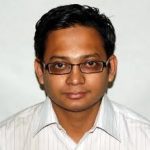
Faisal Hasan
Faisal Hasan (Bangladesh) is an associate professor of Computer Science at the University of Dhaka, Bangladesh. Faisal received a PhD in Computer Science from the University of Otago, New Zealand, and has been active as the president of the Internet Society Bangladesh Dhaka chapter. Areas of interest include TCP congestion control, distributed protocols, and systems.

Fatima Cambronero
Fatima Cambronero (Argentina) graduated from Universidad Nacional de Cordoba and received a diploma in Law and Technology from the Universidad Blas Pascal. She is a lawyer involved in Internet governance issues and personal data protection, privacy, and intellectual property rights.
She is also an alumnus of DiploFoundation’s Internet Governance Capacity Building Programme and the ICANN Fellowship Programme.

Jorge González
Jorge Gonzalez (Venezuela) works at UCLA University in Venezuela in the Networking Department. Jorge believes there are various technology-related issues that require attention in the developing countries, including teaching Internet governance, making the Internet a safer place for children, and operationalizing cyber security.

Kris Seeburn
Kris Seeburn (Mauritius) teaches at the University of Technology, Mauritius, and is an evangelist of good Internet practices. Kris is actively involved in the telecom and Internet policies, and a Board member of the RIR – AFRINIC and of the National Telecom Authority.

Nabil Benamar
Nabil Benamar (Morocco) works as a Professor of Computer Science at the Moulay Ismail University. He holds a Master’s degree in Computer Networks and a PhD in Computer Science from the Moulay Ismail University. Nabil has extensive experience in IPv6, DNS, security and privacy, open source culture, and networking.

Natalia Enciso
Natalia Enciso (Paraguay) is an Attorney-at-Law and a Professor at the Universidad Autónoma de Asunción (UAA). Her work is concentrated in the areas of online trust and identity, e-Commerce, e-Government, data protection, and mediation.
Ms. Enciso is especially interested in human rights and exploring how proposed legislations such as SOPA, PIPA, and CISPA relate to censorship and freedom of expression.

Olga Cavalli
Olga Cavalli is an Internet leader whose work has been fundamental for enhancing participation of Latin America and the Caribbean in Internet Governance. She served on the Internet Society Board of Trustees from 2016 – 2021.
She is the co-founder and the academic director of the South School on Internet Governance which has granted more than 3,500 fellowships for attending an intensive training on Internet Governance, organized in different countries of the Americas since 2008. The School is also open to the community through remote participation with video streaming and different languages, hosting thousands of attendees from all over the world. She is also the co-founder of other capacity-building activities: Dominios Latinoamerica, ARGENSIG, the Argentina School on Internet Governance and Desafíos de Internet.
She co-edited the book “Internet Governance and Regulations in Latin America” published in commemoration of the 10th anniversary of the South School on Internet Governance. The book is free and available in Spanish for the whole community and soon will be published in Portuguese and English.
Olga is frequently invited as keynote speaker and panelist in international summits and events. Recently the German Government invited her to participate in the IGF 2019 Berlin promotional video, which includes personalities like Angela Merkel and Vint Cerf, among others. She is also a frequent contributor writing papers and chapter books in subjects related to her areas of expertise.
Since 2006 Olga has been very active in ISOC. Since 2016 she has been a member of the ISOC Board of Trustees. She is an ISOC Argentina Chapter board member, and was the ISOC Argentina Chapter´s president (2015–2018) and the Chapter´s Board Secretary (2011–2015). She was also a member of the ISOC Chapter Advisory Council representing Latin America and the Caribbean, among other activities.
Recognized by ISOC as a “Game Changer”, Olga works towards the inclusion of girls and women in ICTs and the Internet, organizing activities jointly with ISOC, ISOC Argentina Chapter, ITU, UNESCO, ICANN, the Argentina National Center of Engineers and the University of Buenos Aires.
As an Internet expert, she was invited by ITU to participate in the Study Group on Internet of Things and Smart Cities (2015-2017). The ITU has recognized her as an innovator in this field.
During 2007- 2014 she was distinguished by the United Nations Secretary General, being chosen to be a part of the Internet Governance Forum’s Multistakeholder Advisory Group, MAG.
Olga is very active in ICANN. She is co-lead of Work Track 5 on Geographic Names at the Top Level and Vice Chair of the Governmental Advisor Committee (GAC). She was a member of the Cross Community Working Group on Accountability for the IANA transition, GNSO Council Member, GNSO vice chair, a member of the LAC Regional committee, among other activities.
Olga is a Teacher at the University of Buenos Aires and is also involved in the development of community network projects in rural areas of Argentina.
Olga is a member of the IGF Argentina committee. Previously she was a member of the LAC IGF committee, the representative of Argentina in the WSIS (Tunis 2005), a member of the Committee of the Regional Action Plan eLAC – ECLAC for the Information Society in Latin America and the Caribbean (2010-2015), coordinator of the REGULATEL IDB Regional Roaming Project (2010-2013), member of the National Commission of Cyber Crime which defined the Cyber Crime Law of Argentina (2008-2009), member of the Commission that created the National Digital Agenda of Argentina (2008-2009) and Board member of the National Engineers Center of Argentina.
Her education includes a PhD in Business Direction, a Master’s degree in Business Administration, a Master’s degree in Telecommunications Regulation, and a degree in Electronic and Electric Engineering.
She is fluent in Spanish, English, Portuguese and German, and can understand French and Italian.
Olga lives in Buenos Aires and is the mother of Juana and Federico.

Paul Muchene
Paul Muchene (Kenya) is a software entrepreneur and a network engineer at the iHub in Nairobi. He also runs a web startup in Nairobi building websites and web applications and holds a Bachelor’s degree in Computer Science from the University of Nairobi. His interests encompass Domain Name System (DNS), DNS Security, and IPv6.

Rolando Rodriguez
Rolando Rodriguez (Venezuela) is a Field Engineer with Advantech Wireless, where he specializes in IPv4, IPv6, satellite communication, switching and routing, and network monitoring.
His interest areas include multilingualism (specifically the use of native Latin languages on the Internet), human rights and freedom of expression, e-Inclusion, and Internet Governance for Development (IG4D).

Roxana Radu
Dr. Roxana Radu is the Chair of Internet Society – Switzerland since 2016. In this capacity, she leads the engagement of the chapter on Internet-related policy developments at the national level.
Roxana has worked on Internet governance and digital policy for over 7 years and has been awarded the Swiss Network for International Studies Award 2017 (SNIS) for her PhD thesis, Global Rules for Emerging Issue Domains: Negotiating the Governance of the Internet, defended at the Graduate Institute of International and Development Studies in September 2016. Her research and publications focus on international governance and global Internet policymaking.

Samuel Morgan
Samuel Morgan currently works as a technical coordinator for mobile money and financial solutions with Advanced integrated Systems in Jamaica. Samuel has bachelors degrees in Computer Science and Mathematics, as well as a Law degree, and will be undertaking his bar training this year.
Samuel has previously participated as a youth fellow with the International Telecommunications Union (ITU) in a number of events including the World Telecommunications Policy Forum in 2009, and the World Telecoms in Hong Kong and Geneva in 2006 and 2009 respectively.

Sorina Teleanu
Sorina Teleanu (Romania) is a civil servant working on ICT legislation in the Romanian Parliament and doing a fellowship at the IGF Secretariat in Geneva. Her main interests include management of Internet critical resources, e-government, privacy, and data protection and freedom of expression.

Tracy Hackshaw
Tracy Hackshaw is Vice Chair of the Internet Society Trinidad & Tobago Chapter. He is a graduate of the DiploFoundation’s Internet Governance Capacity Building Programme in 2008 and is now a member of their Research & Teaching Faculty. Tracy participated in the ICANN Fellowship Program at the Sydney and Seoul Meetings in 2009, at Catagena in 2010 and at Prague in 2012.
Additionally, he participated as an Internet Society (ISOC) Ambassador (part of the ISOC Next Generation Leaders Program) to the 2009 Internet Governance Forum (IGF) in Sharm-el Sheikh; and returned as an ISOC Ambassador for the 2010 IGF in Vilnius. He also participated in the 2011 IGF in Nairobi as a DiploFoundation Emerging Leader for the Digital World. He is a national of the Republic of Trinidad & Tobago and has been educated at the 1st degree level in Sociology & Psychology via the University of the West Indies (St. Augustine) and at a graduate level in International Management at the University of London (Royal Holloway).
Professionally, Tracy is Team Lead & Chief Solution Architect in the Solution Architect Office at the National Information & Communication Technology Company Ltd. and is currently on assignment as Technology Co-ordinator to the Ministry of Science & Technology in Trinidad & Tobago.
In addition, Tracy is involved, in advisory capacity to the Government of the Republic of Trinidad & Tobago’s representation to the ICANN Governmental Advisory Committee (GAC).
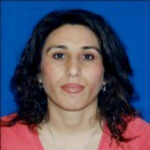
Ulkar Bayramova
Ulkar Bayramova (Azerbaijan) is currently a PhD student and working as senior expert at the International Relations office of the Azerbaijan University of Languages. Ulkar is an active member of the Azerbaijan Internet Society Chapter formation group and also director of an Internet Society small community grant.
2011 IGF Ambassadors
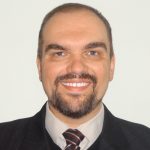
Antonio M Moreiras
Antonio M. Moreiras is a Computer Engineer at NIC.br, where he is in charge of IPv6 dissemination, and other projects related to the Internet infrastructure.
He has an MBA in Business Administration, an MSc in Computer Engineering, and is also an alumni from DiploFoundation and SSIG’10 Internet Governance courses.

Elif Küzeci
Elif Küzeci is an Assistant Professor at Bahçeşehir University Faculty of Law. Her areas of interest include data protection, freedom of expression, intellectual property rights on the Internet, and computer crime.

Farzaneh Badiei
Farzaneh Badiei is an Intern at the Internet Governance Forum Secretariat. She holds an LLM in International Commercial Law and has carried out research at Geneva University on the role of the Internet in facilitating commercial dispute resolution.
Her research interests include the role of the Internet in facilitating access to justice, e-governance and dispute resolution, the use of Online Dispute Resolution (ODR) in developing countries, and dispute resolution strategies in e-marketplaces.

Fatima Cambronero
Fatima Cambronero (Argentina) graduated from Universidad Nacional de Cordoba and received a diploma in Law and Technology from the Universidad Blas Pascal. She is a lawyer involved in Internet governance issues and personal data protection, privacy, and intellectual property rights. She is also an alumnus of DiploFoundation’s Internet Governance Capacity Building Programme and the ICANN Fellowship Programme.

Hempal Shrestha
Hempal works as a Programme Officer with Bellanet Alliance c/o SAP International in Nepal. He is an lawyer working in the Open Development issues. His work focuses on the appropriate use of ICTs and Knowledge Sharing Technologies to facilitate collaboration among development communities and individuals in civil society.
He is also an advocate and practitioner of Free and Open Source Software, Open Content. He is the founding member and General Secretary of FOSS Nepal Community. He is also a member of Nepal Bar Association (NBA) and Computer Association of Nepal (CAN).
Prior to joining SAP International (Bellanet team), Hempal gained experience in various fields, including as Lecturer and Head of Department at St. Xavier’s College, Nepal for Bachelor’s in Information Management and as Software Developer at Asia Pacific Communication Associates Nepal (APCA-Nepal) .
He completed his Bachelor’s in Law (LLB) and Master’s in Computer Application (MCA) from Lucknow, India.

Madeeha Rehman
Madeeha Rehman is working as a Solution Architect in Nexus Telecom AG, Pakistan where her duties include designing technical specifications of network monitoring and management solutions for GSM and GPRS networks. Her interest areas are Wireless Technologies such as WiMAX, HSPA, LTE; transition from IPv4 to IPv6; and Network investigation and management.

Marcin Cieslak
ICT Consultant, President of ISOC Poland System Business Consulting.

Maria Casey
Maria Casey is a 22 year old scholar, who has recently graduated with a B.Sc in Computer Systems from the University of Limerick, Ireland and is about to commence with a Masters of Eng. in Information and Network Security. She has previously worked with the Information Systems department of Boston Scientific, a worldwide developer and manufacturer of medical devices which are used in a range of medical specialties.
Maria was selected to represent Ireland at the ITU’s conference in Geneva, Switzerland as a member of the Youth Forum, which is an initiative of the ITU to bring together 300 young fellows from 150 countries around the world. During the ITU conference, the youth forum collaborate to represent the global youth’s stake in ICT policy and also to represent themselves as future leaders, which results in the production of a declaration/action plan to be published by the ITU. Maria was elected from her peers at the conference to present the declaration created by the youth, at the joint closing ceremony at the closing of the ITU conference.
Maria is presently taking place in ISOC’s Next Generation Leaders Programme (NGL), an eLearning Programme using online format for the express purpose of preparing professionals to lead in Internet technique, policy and governance on local, regional and international levels along with 23 others, selected from various countries in the world.

Paul Muchene
Paul Muchene (Kenya) is a software entrepreneur and a network engineer at the iHub in Nairobi. He also runs a web startup in Nairobi building websites and web applications and holds a Bachelor’s degree in Computer Science from the University of Nairobi. His interests encompass Domain Name System (DNS), DNS Security, and IPv6.

Philip Adar
Philip Adar is a Lecturer at the Faculty of IT at Strathmore University and Project Manager at Nokia Siemens Networks, where he is responsible for managing the deployment of 3G broadband networks for service providers in six African countries. His research interests include mobile access to the Internet and quality of service management for wireless networks.

Rafid Fatani
Fatani first gained academic insight into the different layers of the Internet architecture, its constraints and the development of its various standards and applications, experiencing Internet governance through the prism of the development of its technical infrastructure during his Engineering and computer science programme at the undergraduate level.
Upon continuing his studies at the postgraduate level, Fatani had the opportunity to explore technology from the perspective of the freedom of expression, privacy, and safeguarding of national interests which provided him with a better understanding of Internet governance as a multidisciplinary phenomenon. Fatani’s MA dissertation on The Global Governance of the Internet: Context, ICANN and the Case Study of the Domain Name System Root, and his interaction inside the Department of Politics helped him develop a good comprehension of the social, cultural, and legal challenges that arose from the rapidly evolving Internet. This proved to be very influential when he came to consider possible prospects of doctoral research.
The decision to undertake a PhD program reflected Fatani’s genuine interest in further exploring and contributing to the debate of the future of technological evolution. Through the course of Fatani’s doctoral studies, he has had the opportunity to participate in both Rio and Hyderabad IGF as well as the regional UK IGF, enhancing his understanding of the different stances and dilemmas faced by stakeholders. Moreover, participating in an online course with Diplo Foundation, which introduced analytical insight in challenging Internet governance related topics, expanded his horizons on innovative methods of online learning and research.
While Fatani is currently interning at the Secretariat of the Internet Governance Forum in Geneva, his research is in the process of developing an open-source platform, through which different stakeholders can provide direct user-generated input to his thesis as a new form of data collection. If marketed appropriately, this could provide an excellent set of primary data that would otherwise use up a lot of time and resources. Although not a completely novel idea, Fatani believes the use of similar methodologies will pave the way for a new frontier of social science research.

Rajendra Prasad Poudel
Rajendra Prasad Poudel is a Nepalese citizen, with a Masters degree in Mathematics and Information Technology. He taught in the University of Nepal for six years before joining E-Network Research and Development (ENRD) as Project Director in 2004. At ENRD, Mr Poudel designed the organisations ICT project for rural areas of Nepal.
He is now involved in promoting tele-medicine and tele-education projects via broadband wireless networks in remote villages. This work involves considerable research in broadband wireless technology for mountainous and other difficult regions. To pursue this research, Mr Poudel is currently working with a Japanese company which is providing training for the projects through micro-server technology.
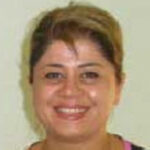
Siranush Vardanyan
Siranush Vardanyan current position is Program Development Manager at Habitat for Humanity Armenia (HFHA). Siranush has more than fifteen years experience in working with international organizations. Before joining HFHA team, from 2000-2008 Siranush worked for Project Harmony Armenia first as an Outreach Manager and then as a Program Manager for the Armenia School Connectivity Program.
Siranush has the extensive managerial, communication, and project implementation skills. She is one of the pioneers in Armenia of online facilitation and, as a Trainer of Trainers for successful leadership and completion of Online Facilitation and Development, conducted numerous trainings for Armenian students and teachers.
Since 2007 Siranush has been actively involved in different Internet Governance issues, she is Diplo Foundation Alumnus, participating at “Internet Governance Capacity Building Training” Program in 2007, she is also the participant of the First European Summer School on Internet Governance in Germany in August 2007, as well as she is three time ICANN Fellow (Internet Corporation for Assigned Names and Numbers) and participate in ICANN international public meetings in India, France, Egypt and Australia.
Siranush is also Salzburg Seminar Fellow of the Academic Core Session “International Legal Perspectives on Human Rights”, as well as Central European University Summer School participant on “Human Rights and Forced Displacement: An Interdisciplinary Approach” Course. During her professional career, she participated in more than 25 international conferences and workshops, has several publications in local and international journals.

Sorina Teleanu
Sorina Teleanu (Romania) is a civil servant working on ICT legislation in the Romanian Parliament and doing a fellowship at the IGF Secretariat in Geneva. Her main interests include management of Internet critical resources, e-government, privacy, and data protection and freedom of expression.

Stanley Osao
Stanley Osao (Papua New Guinea) is a Control Systems Engineer by profession. He currently serves as Board Chair of iPNGC for the second term. He has also been active in ICANN with their fellowship program and At-Large communities. Stanley has worked in academia, international NGO, the private sector, and also undertakes freelance work in ICTs, telecommunications, and electrical engineering.
He has a technical background in industrial communication systems, computing and automation engineering. Stanley graduated with a BEE from PNG University of Technology and a MEng in Control Systems from Auckland University of Technology. His main interests in the Internet space is to promote, defend and facilitate a fair, secure, open, safe and affordable internet in his country and region.
2010 IGF Ambassadors
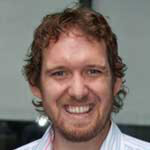
Andrew Cushen
Andrew Cushen is a New Zealander, and is employed as Senior Public Policy Advisor at Vodafone New Zealand. He is also a Director of the Internet Service Provider Association of New Zealand (ISPANZ) and a member of InternetNZ. Andrew has over five years experience in telecommunications, working across customer service; commercial procurement; strategic development; industry relations; and public policy. He is currently working on a number of projects related to public funding of high-speed data networks in New Zealand, and the policy, funding and commercial implications of these networks. Prior to joining the telecommunications industry, Andrew worked as a lobbyist on behalf of University students in New Zealand.
Andrew has a Master of Arts with Honours in Political Studies from the University of Auckland; a Bachelor of Arts with Honours in Political Studies and a Bachelor of Commerce in Economics and Finance, both from the University of Otago. His academic interests include researching the influence of the internet upon politics and democracy, and the role that the internet can play in providing greater information about politics and motivating citizens toward greater participation in their democracies.
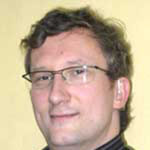
Arnoud van Wijk
Arnoud van Wijk earned a Masters degree in biochemistry, studying at the Radboud Universiteit Nijmegen in the Netherlands.
After working for four years at the Children’s Hospital in Los Angeles, USA, he moved into the ICT field leaving the Biomedical research behind. In 2000, he started working for Ericsson in the Netherlands. From 2003 until 2005, he joined the Dutch organization Viataal (now know as Koninklijke Kentalis) to work on accessible telecommunication and Internet. Which led to the development and introduction of the first mobile RTT application on Blackberry with AnnieS, a Dutch company that sells mobile text telephone services for people who are deaf and hard of hearing.
He is a technical adviser for the European Federation for Hard of Hearing People (EFHOH) and for the European Commission on ICT for e-Inclusion.
He is part of the European Disability Forum (EDF) expert network on ICT.
Since 2001, he also works together with the Trace Research and Development Center of the University of Wisconsin-Madison which has a partnership with the Technology Access Program at Gallaudet University in Washington DC.
In 2007, he founded his own consulting company GreenGiraffe, which is specialized in ICT inclusion issues and technology. Making the Internet accessible for people with disabilities. Via GreenGiraffe till December 31 2009, Arnoud has worked with the Internet Society (ISOC) to coordinate and advance activities related to the Internet and persons with disabilities. He is an expert in related Internet Protocol based technologies and e-inclusion issues.
Arnoud is an active participant in the Internet Engineering Task Force (IETF) since December 2000, where he has co-authored or contributed to various Internet Drafts and RFCs related to the Real- Time Text standard and Session Initiation Protocol (SIP). Also he participates in the Internet Governance Forum (IGF) and is a member of ITU’s Dynamic Coalition on Accessibility and Disability (DCAD, IGF).
Arnoud lives in Oss, The Netherlands.
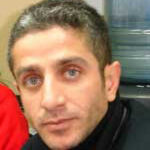
Bunyamin Atici
As a Head of Computer Education and Instructional Technology department at Firat University, Dr. Atici has over ten years of management and teaching experience in Turkey.
He has assumed the responsibilities of teaching and researches at the university level, international project management and consulting. He has taught several courses related with pedagogy and computer at the university level.
He speaks English and Turkish. He has expertise in the following areas:
Virtual Learning Environments,
Terror and Pedagogy,
Cyber terror,
Computer Supported Cooperative Learning,
Computer Mediated Communication,
Online Learning Communities,
Distance Learning and Web Design,
Project Management.
At the present he is teaching at the Firat University, Turkey, and acting as a Director of Firat University Distance Learning Centre. In 2005, he managed one grant related with cyber terror for European Union Leonardo da Vinci Program. He delivered seminars about EU Education and Training Programmes and Actions in local level: Project Management in Germany, France, Greece, FYR of Macedonia, Turkey; developed Firat University Virtual Learning Environment. As a Researcher/ Consultant in the field of instructional technology, he has a specialist in designing and implementing the whole kinds of online learning. He has developing methods for e-learning systems using different methods such as social knowledge construction.

Ceren Ünal
Ceren Ünal joins the Internet Society as the Manager, Chapter Development- Europe.
Ceren’s engagement with ISOC began as an individual member that further developed through the NGL Program as an IGF Ambassador (Hyderabad 2008, Vilnius 2010) and various other ISOC events and projects she participated in and eventually became the founding chair of the Internet Society Turkey Chapter (ISOC-TR) in 2014.
Ceren Ünal studied law at Ankara University, subsequently gaining an LLM degree from Queen Mary, University of London, specialising in Computer and Communications Law as a British Chevening Scholar. Always fascinated by the Internet and the challenges and opportunities it presents to the law as we know it, Ceren has been teaching and consulting on IT/Internet law issues since 2003.
She is qualified as an Attorney-at-Law, a National Patent and Trademark Attorney and a European Patent Attorney as well as working as an instructor at Bilkent University Faculty of Law prior to joining Internet Society. She is also a PhD candidate in civil Law at Ankara University with a dissertation on ISP Liability, for which she has conducted research in Freiburg University and Swiss Institute of Comparative Law as a van Calker Scholar.
Ceren speaks Turkish, English and German. She is based in Ankara, Turkey.

Charles Gaye
Liberia Chapter of the Internet Society
Member of the International Association of Business Communicators
Alumni at Diplofoundation Foundation
Two times Fellow at Internet Corporation of Assigned Names and Numbers (ICANN).

Cristos Velasco
Cristos Velasco is a Mexican attorney with practical experience in the fields of international trade, telecommunications and technology law.
He was the co-founder of a Graduate Diploma Course on Legal Aspects of Information Technologies at Instituto Tecnologico Autonomo de Mexico (ITAM) in 2002 where he has lectured in the areas of Internet regulation, e-commerce, privacy, data protection and cybercrime law and policy.
One of his specializations is in the field of privacy and data protection law. He has written extensively in the field since 2000, and has presented in national and international workshops and seminars and related international organizations working in the field. He maintains a blog “Data Protection and Privacy in Mexico and at the International Level” http://www.protecciondedatos.org.mx, informing, publishing and commenting on relevant news, policies and law initiatives in the areas of privacy, data protection, cross-border data flows, data retention and cybercrime occurring in Mexico, Latin America and Europe.
He is the author of “Mexico’s Cyberlaw Monograph” of the International Encyclopaedia of Laws, published by Kluwer Law International, the last edition of which was published in April 2010.
He has been an active member of ISOC, Mexico Chapter since 2001. He has been involved in the academic and non-profit sector for a number of years. He is the founder and the current General Director of the North American Consumer Project on Electronic Commerce
NACPEC since 2003. He is the Director and Coordinator of Ciberdelincuencia.Org, an initiative initially supported by the Internet Society and NACPEC launched in September 2008, the purpose of which is to facilitate and promote the exchange of information and best practices in the field of cybercrime and security among legal and policy experts in Latin-America.
He obtained an LL.M in International Trade Law from the University of Arizona in Tucson in 2001. He holds specializations in Business Law from Instituto Tecnologico Autonomo de Mexico (ITAM), and in International Trade Law from Universidad Panamericana (UP) in Mexico City, and obtained a Bachelor of Laws (JD) from Universidad Del Valle de Mexico in 1998. He obtained the European Certificate on Cybercrime and Electronic Evidence (ECCE) in May 2009. He is currently working on his PhD thesis at Universidad Carlos III (UC3M) in Madrid.
His mother language is Spanish and he is fluent in English and German.

Epstein Dmitry
Dmitry Epstein is a doctoral candidate in the Department of Communication at Cornell University. He holds a BA in Economics from Tel-Aviv University and an MA in Comparative Media Studies from Ben-Gurion University. In addition, Dmitry has worked as a Research Assistant at the Berkman Center for Internet and Society at Harvard University and as a Research Fellow at the Information + Innovation Policy Research Centre, Lee Kuan Yew School of Public Policy, where he remains a non-resident fellow.
He has also graduated from the Internet Governance Capacity Training of the Diplo Foundation and is maintaining www.internetgovernance.org.il – an Israeli resource on Internet Governance. To his academic activity, Dmitry brings a record of work in the venture capital and consulting industries, as well as a record of social activism and leadership. He is an alum of the ITU Youth Forum and is a co-founder of the Human Network – a global network of youth interested in socially responsible entrepreneurship and ICT. Dmitry is a relatively active blogger and a participant in the academic community of researchers of new media and society. You can follow up his activities on his website: www.thinkmacro.org.

Grace L.N Mutung’u
Grace L N Mutung’u (Bomu) is a young Kenyan ICT lawyer. She works for a theatre company, Fanartics Limited as a public relations, communications and legal officer. Since 2005 she has served as the secretary of the Kenya ICT Consumers Association which is an organisation advocating for consumer empowerment in the ICT sector. She is a Diplo 2009 Internet Governance Capacity Building Programme alumni.
Grace has a passion for politics and youth empowerment and has participated in many initiatives on the same through groups such as the Pioneers for Change (Kenya) and the Africa Youth Trust.
She is currently participating in the ISOC /Diplo Foundation Next Generation Leaders Programme and looks forward to a more connected world where Internet rights are upheld.

Maria Casey
Maria Casey is a 22 year old scholar, who has recently graduated with a B.Sc in Computer Systems from the University of Limerick, Ireland and is about to commence with a Masters of Eng. in Information and Network Security. She has previously worked with the Information Systems department of Boston Scientific, a worldwide developer and manufacturer of medical devices which are used in a range of medical specialties.
Maria was selected to represent Ireland at the ITU’s conference in Geneva, Switzerland as a member of the Youth Forum, which is an initiative of the ITU to bring together 300 young fellows from 150 countries around the world. During the ITU conference, the youth forum collaborate to represent the global youth’s stake in ICT policy and also to represent themselves as future leaders, which results in the production of a declaration/action plan to be published by the ITU. Maria was elected from her peers at the conference to present the declaration created by the youth, at the joint closing ceremony at the closing of the ITU conference.
Maria is presently taking place in ISOC’s Next Generation Leaders Programme (NGL), an eLearning Programme using online format for the express purpose of preparing professionals to lead in Internet technique, policy and governance on local, regional and international levels along with 23 others, selected from various countries in the world.

Maria Dolores Puy
Maria Dolores Puy is a lawyer and civil-law or latin notary, who currently serves as contracts record holder in the city of Esperanza, Argentina. As public officer her role is to provide advice and also draft, authenticate and register legal instruments.
Her first approach to computer law and Internet infrastructure was during her undergraduate studies, having deepened his internalization about the different issues that the Internet raises while she was pursuing her specialization as a notary. The theme selected for her final dissertation was “The Electronic and Digital Signature as authentication methods”.
But her interest and commitment to the Internet Governance topics began to grow from her decision to pursue a PhD in Law at the National University of Litoral in Santa Fe. Through the course of Mrs. Puy´s doctoral studies, she has successfully completed the OAS on line course on e-government and also the has had the opportunity to take part of the 2010 DiploFoundation Internet Governance Capacity Building Programme -Foundation and Advanced Phases- and therefore she expects to join the Researchers Phase, in order to continue with her investigation in cybersecurity. This last e-learning experience has deeply enriched her knowledge about the various aspects involved in IG and the different ways in wich they are addressed, at the national, regional and global level.
Theoretical and practical training on IG gained in recent years was awarded with a fellowship to attend to the South School on Internet Governance, held last March in Sao Paulo, Brazil. On that occasion she was able to interact with a prestigious academic body and students from throughout Latin American and Europe. With this Ambassadorship, granted as part of the ISOC Next Generation Leaders Program, she plans to apply all this gathered information and turn her renewed perspective locally, developing activities in cooperation with the ISOC Argentina Chapter.

Siranush Vardanyan
Siranush Vardanyan current position is Program Development Manager at Habitat for Humanity Armenia (HFHA). Siranush has more than fifteen years experience in working with international organizations. Before joining HFHA team, from 2000-2008 Siranush worked for Project Harmony Armenia first as an Outreach Manager and then as a Program Manager for the Armenia School Connectivity Program.
Siranush has the extensive managerial, communication, and project implementation skills.
She is one of the pioneers in Armenia of online facilitation and, as a Trainer of Trainers for successful leadership and completion of Online Facilitation and Development, conducted numerous trainings for Armenian students and teachers.
Since 2007 Siranush has been actively involved in different Internet Governance issues, she is Diplo Foundation Alumnus, participating at “Internet Governance Capacity Building Training” Program in 2007, she is also the participant of the First European Summer School on Internet Governance in Germany in August 2007, as well as she is three time ICANN Fellow (Internet Corporation for Assigned Names and Numbers) and participate in ICANN international public meetings in India, France, Egypt and Australia.
Siranush is also Salzburg Seminar Fellow of the Academic Core Session “International Legal Perspectives on Human Rights”, as well as Central European University Summer School participant on “Human Rights and Forced Displacement: An Interdisciplinary Approach” Course. During her professional career, she participated in more than 25 international conferences and workshops, has several publications in local and international journals.

Tracy Hackshaw
Tracy Hackshaw is Vice Chair of the Internet Society Trinidad & Tobago Chapter. He is a graduate of the DiploFoundation’s Internet Governance Capacity Building Programme in 2008 and is now a member of their Research & Teaching Faculty. Tracy participated in the ICANN Fellowship Program at the Sydney and Seoul Meetings in 2009, at Catagena in 2010 and at Prague in 2012. Additionally, he participated as an Internet Society (ISOC) Ambassador (part of the ISOC Next Generation Leaders Program) to the 2009 Internet Governance Forum (IGF) in Sharm-el Sheikh; and returned as an ISOC Ambassador for the 2010 IGF in Vilnius.
He also participated in the 2011 IGF in Nairobi as a DiploFoundation Emerging Leader for the Digital World. He is a national of the Republic of Trinidad & Tobago and has been educated at the 1st degree level in Sociology & Psychology via the University of the West Indies (St. Augustine) and at a graduate level in International Management at the University of London (Royal Holloway).
Professionally, Tracy is Team Lead & Chief Solution Architect in the Solution Architect Office at the National Information & Communication Technology Company Ltd. and is currently on assignment as Technology Co-ordinator to the Ministry of Science & Technology in Trinidad & Tobago.
In addition, Tracy is involved, in advisory capacity to the Government of the Republic of Trinidad & Tobago’s representation to the ICANN Governmental Advisory Committee (GAC).

Vanessa Cravo
Vanessa Copetti Cravo works as a telecommunication regulation expert at the Brazilian National Telecommunications Agency (Anatel), in the regional office located at Porto Alegre, Rio Grande do Sul State, since 2005, after graduating from Law School at Federal University of Rio Grande do Sul State (UFRGS). In 2008 she finished a Public Law Specialization and she began her studies in Cyberlaw, which have reflected in her master dissertation theme’s choice for cybercrimes and international initiatives. During 2009 she completed DiploFoundation Internet Governance Capacity Building Program (Foundation, advance and research phases) and she was awarded a Fellowship to attend the IV IGF, held in Sharm el-Sheik, Egypt. She has also joined some Brazilian delegations to ITU-D meetings (2009 and 2010). She is currently researching for her dissertation’s project and she is going to attend the EURO-SSIG2010.
2009 IGF Ambassadors

Anupam Agrawal
Anupam Agrawal has a long involvement with the Indian Internet community. He is the founding chair of the ISOC India Kolkata Chapter and is leading a Special Interest Group on Data Insurance in Data Security Council of India Kolkata Chapter. The SIG is working on various aspects of Data Insurance like creation of models, discussing and coordinating with various regulatory agencies and Insurance Companies.
Educated as a Chartered Accountant & Certified Information System Auditor his work as a functional consultant in Tata Consultancy Services Ltd. relates to development of financial information systems hovering around Internet technologies. He strongly believes that Information Technology is the only way through which India as a country can fight basic issues like corruption & ill-literacy and Internet is the medium through which it can connect with the masses. As part of ISOC Kolkata Chapter he is focusing on local issues of internet connectivity and Online Safety of Children and his current field of study is Multi Stakeholder approach of Internet Governance.

Burmaa Baasansuren
Ms. Baasansuren Burmaa has 13 years experience in the Internet industry. She works as MN Domain Registry Director of Datacom (Mongolia). Her experience includes regularly addressing domain name management, policy development, IPRs, and branding issues.
In 2006, she played key role in transitioning .MN to SRS (EPP). Burmaa has worked extensively on matters relating to the mnTLD policies and ccTLD issues. She has been involved in ICANN since 2006, APNIC since 2003 and APTLD since 2004.

Ceren Ünal
Ceren Ünal joins the Internet Society as the Manager, Chapter Development- Europe.
Ceren’s engagement with ISOC began as an individual member that further developed through the NGL Program as an IGF Ambassador (Hyderabad 2008, Vilnius 2010) and various other ISOC events and projects she participated in and eventually became the founding chair of the Internet Society Turkey Chapter (ISOC-TR) in 2014.
Ceren Ünal studied law at Ankara University, subsequently gaining an LLM degree from Queen Mary, University of London, specialising in Computer and Communications Law as a British Chevening Scholar. Always fascinated by the Internet and the challenges and opportunities it presents to the law as we know it, Ceren has been teaching and consulting on IT/Internet law issues since 2003.
She is qualified as an Attorney-at-Law, a National Patent and Trademark Attorney and a European Patent Attorney as well as working as an instructor at Bilkent University Faculty of Law prior to joining Internet Society. She is also a PhD candidate in civil Law at Ankara University with a dissertation on ISP Liability, for which she has conducted research in Freiburg University and Swiss Institute of Comparative Law as a van Calker Scholar.
Ceren speaks Turkish, English and German. She is based in Ankara, Turkey.

Charity Gamboa-Embley
Charity Gamboa is an educator, writer, and consultant by profession, both in classroom and in distance education for ten years. Her teaching experience included Computer Literacy programs for modular/vocational courses in grassroots communities for out-of-school young women in the Phillippines that incorporated Basic English language learning into the Computer Literacy program. She also taught Information Technology courses, Science, and ESL in private institutions as a certified TESOL/TESL and trained online teachers. Charity is a Diplo Foundation associate, and graduated in the Internet Governance Capacity Building Programme 2007 and tutored for the IGCBP.
She is Chairperson for ISOC Philippines Chapter of the Internet Governance Working Group under Public Policy; a member of the IGF Remote Participation Working Group; a Fellow/participant in the collective process of the civil society paper presented to the OECD on the “Future of the Internet Economy” in Seoul, South Korea (prepared within the framework of the Public Voice); a Fellow of GK3 (Third Global Knowledge) in Kuala Lumpur; and an IGF Hyderabad fellow, under the partnership of Diplo Foundation and ITU.
Charity is also an author and translator in “Global Voices in Filipino”, part of the Global Voices Online Lingua project. She is actively involved in the IGF Wikipedia English article and translated the English version to Tagalog. She is also an editor for Babel – a multilingual, multicultural online journal and community of arts and ideas – advocating on a diverse, safe and a multistakeholder Internet, women empowerment, social and political justice in the Philippines, free access to learning, community development and educational leadership.

Charles Mok
Charles Mok has a long involvement with the Hong Kong Internet community.
He is the founding chairman of the Internet Society Hong Kong Chapter, former president of the Hong Kong Information Technology Federation (HKITF), and former chairman and co-founder of the Hong Kong Internet Service Providers Association (HKISPA).
Educated as an electrical engineer, he also has a strong business grounding, having been the Deputy Managing Director and a co-founder of one of Hong Kong’s first Internet service providers. He is a director of a technology consultancy business and sits on the boards of several technology companies.
Mr Mok is a member of the Policy Advisory Board for the operator of the .mobi sponsored top level domain and is a former director of the .hk domain name registry. His has served on many government bodies and advisory committees, has a deep commitment to cross-sector public affairs, and is an experienced media commentator on technology issues.
On 9th September 2012, Charles Mok won his seat (of the Information Technology Functional Constituency) for the Hong Kong Legislative Council. The Internet Socitey around the world offers its heartfelt congratulations to Charles and all our members who continue to work for an open and accessible Internet.

Cristos Velasco
Cristos Velasco is a Mexican attorney with practical experience in the fields of international trade, telecommunications and technology law. He was the co-founder of a Graduate Diploma Course on Legal Aspects of Information Technologies at Instituto Tecnologico Autonomo de Mexico (ITAM) in 2002 where he has lectured in the areas of Internet regulation, e-commerce, privacy, data protection and cybercrime law and policy.
One of his specializations is in the field of privacy and data protection law. He has written extensively in the field since 2000, and has presented in national and international workshops and seminars and related international organizations working in the field.
He maintains a blog “Data Protection and Privacy in Mexico and at the International Level” http://www.protecciondedatos.org.mx, informing, publishing and commenting on relevant news, policies and law initiatives in the areas of privacy, data protection, cross-border data flows, data retention and cybercrime occurring in Mexico, Latin America and Europe.
He is the author of “Mexico’s Cyberlaw Monograph” of the International Encyclopaedia of Laws, published by Kluwer Law International, the last edition of which was published in April 2010.
He has been an active member of ISOC, Mexico Chapter since 2001. He has been involved in the academic and non-profit sector for a number of years. He is the founder and the current General Director of the North American Consumer Project on Electronic Commerce
NACPEC since 2003. He is the Director and Coordinator of Ciberdelincuencia.Org, an initiative initially supported by the Internet Society and NACPEC launched in September 2008, the purpose of which is to facilitate and promote the exchange of information and best practices in the field of cybercrime and security among legal and policy experts in Latin-America.
He obtained an LL.M in International Trade Law from the University of Arizona in Tucson in 2001. He holds specializations in Business Law from Instituto Tecnologico Autonomo de Mexico (ITAM), and in International Trade Law from Universidad Panamericana (UP) in Mexico City, and obtained a Bachelor of Laws (JD) from Universidad Del Valle de Mexico in 1998. He obtained the European Certificate on Cybercrime and Electronic Evidence (ECCE) in May 2009. He is currently working on his PhD thesis at Universidad Carlos III (UC3M) in Madrid.
His mother language is Spanish and he is fluent in English and German.
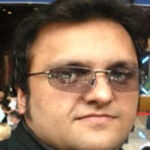
Fouad Bajwa
Fouad is an international ICT for Development specialist, Practitioner, Researcher and Writer, he advises and consults civil society, public and private sectors, national governments, multilateral and bilateral institutions in the framework of strategic access and use of Information and Communications Technologies for Human Development (ICT4D), Internet Governance, ICT Policy, Open ICT Ecosystems, Free and Open Source Software (FOSS), Intellectual Property Rights (IPR) and Corporate Social Responsibility (CSR).
Fouad is an elected member of the IGF Multistakeholder Advisory Group (MAG). As a scholar on Internet Governance issues and alumni of the DiploFoundation, Fouad speaks on Civil Society issues at various levels at national and global level with respect to Free & Open Source Software and ICT4D. Fouad is the member of ICANN’s Non-Commercial Users Constituency (NCUC) and the GNSO Operations Steering Committee Work Team – Communications and Coordination Team (CCT). He has been a participant and observer of the World Summit on Information Society WSIS Geneva 2003 – Tunisia 2005 and Post-WSIS Action Lines also known as the WSIS Forum 2009.
During his 12 year career, Fouad has been engaged with sectors including academia, business, media, public sector, civil society both regionally and globally. He is a member of key ICT governance think thanks and serves on the boards of various non-profit organizations around the globe and is a member of the Champions Network of the prestigious global ICT competition and award, the Stockholm Challenge, is an ICT Advisor to the World Bank Development Gateway Foundation dgCommunity and Board Member of the Open Source Health Care Alliance (OSHCA) and Ex-Officio Member of the Board of the OSHCA Asia Chapter.

Gerard Dantec
Gerard Dantec is a public works engineer at the French Ministry of Ecology, Energy and Sustainable Development. He is vice-president of ISOC France (February 2009).
Beginning in 1986, he was involved in the launch of Videotext servers (Minitel) for the Bureau of the Seine-Saint-Denis Department and in the deployment of applications on these servers.
He first worked with the Internet in 1993 during a 5-year mission in the French West Indies Bureau, in particular during the installation of local networks and their connection to servers in France. He was also in charge of implementing the ICT aspects of the State Contingency Plan in case of hurricanes and other natural disasters.
Since 1998, he has deployed intranet applications and ICT Training platforms for the French Ministry of Ecology, Energy and Sustainable Development as ICT Project Manager for the center for vocational training.
Since 2003, he has also held a teaching position at the Rene Descartes Paris 5 University. He teaches Managing, technical and organizational aspects of ICT projects and coordinates the Comor digital campus for the degree course in Communications’ Technical Activities.
Since 2006, he has been project leader for the General Secretariat of the French Ministry of Ecology, Development and Sustainable Planning. He is also head of the IT mobility and security steering and equipment committee.
He was also involved in the use of technology, fostering the emergence of new forms of activism in a main political party and the campaign of a presidential candidate in 2007.
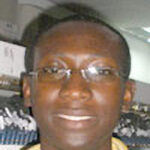
Godfred Ahuma
Godfred K. Ahuma is a Data Services Engineer with MTN-Ghana. He holds a CCNA and a Bachelor of Science in Information and Communication Technologies (ICT), from the Presbyterian University College. Godfred has worked as a Program Assistant at the ITES Secretariat, Ministry of Communications in an office tasked with promoting the ITES/BPO industry in Ghana. His active participation in Internet Governance began when a colleague introduced him to the DiploFoundation Internet Governance Capacity Building Programme in 2008.
His active and successful participation was rewarded with an ITU/Canadian Government fellowship to attend his first IGF meeting, in Hyderabad, India in 2008.
Godfred is continuing research in Cybersecurity, in Critical Information Infrastructure protection. He is an aficionado of technology, with interests including communications network design and security, open source, cybersecurity, ICT for development, and Internet Governance.

Hempal Shrestha
Hempal works as a Programme Officer with Bellanet Alliance c/o SAP International in Nepal. He is an lawyer working in the Open Development issues. His work focuses on the appropriate use of ICTs and Knowledge Sharing Technologies to facilitate collaboration among development communities and individuals in civil society.
He is also an advocate and practitioner of Free and Open Source Software, Open Content. He is the founding member and General Secretary of FOSS Nepal Community. He is also a member of Nepal Bar Association (NBA) and Computer Association of Nepal (CAN).
Prior to joining SAP International (Bellanet team), Hempal gained experience in various fields, including as Lecturer and Head of Department at St. Xavier’s College, Nepal for Bachelor’s in Information Management and as Software Developer at Asia Pacific Communication Associates Nepal (APCA-Nepal) .
He completed his Bachelor’s in Law (LLB) and Master’s in Computer Application (MCA) from Lucknow, India.

John Kabogo Njoroge
John Kabogo Njoroge, from Nairobi, is a Global Member of ISOC, working for the Government of Kenya at the Directorate of e-Government in the Office of the President, currently as ICT Strategist (e-Applications and Web Development Design, Policy and Strategy).
He is involved on a day-to-day basis with e-Government issues, the use of ICTs and the Internet, strategy, and policy guidelines on ICTs for Government Agencies, including the Government network infrastructure and architecture.
John holds a Bachelor of Business Information Technology (from Strathmore University, Kenya) and an MBA Strategic Management (from Kenya Methodist University, Kenya). He was a student of the Internet Governance Capacity Building Programme for DiploFoundation, between March and July 2009.
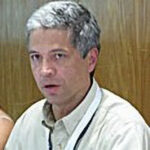
Julian Casasbuenas
Julian Casasbuenas is a chemical engineer with more than 20 years experience in environmental, information, and communication technologies. He has been involved with ISOC since 1993, when he helped establish the NGO Colnodo, which provides Internet services to Colombian development organisations. Colnodo is motivated by issues such as human rights, environment, housing, and the betterment of women’s lives.
With Colnodo he has helped to promote and democratise the use of ICTs and the Internet in Colombia and has developed significant expertise in issues of rural access, telecenters, and open source software. He is a former chair of The Association for Progressive Communications (APC) and is now on the Board of the Development Gateway Foundation. He participated in the first IGF meeting, speaking on issues of cultural diversity and the role of ICTs in sustainable development and participated in the IGF Ambassadors Program in Rio de Janeiro in 2007, focusing in access issues. Currently is involved in the initiative Andinatic with the main goal of reach a more equitable access to the Information and Communication Technologies in the Andean region.

Maureen Hilyard
Maureen Hilyard is the Chair of the Board of the Pacific Islands Chapter of the Internet Society (PICISOC). As the PICISOC Board Chair since 2011, she has been able to introduce ICT for Development (ICT4D) issues and needs of small Pacific Island nations into discussions with ISOC and ICANN constituency groups, as well as at Pacific, regional and international IGF multi-stakeholder meetings. There are currently over 800 members, with 25% residing outside of the Pacific Islands but providing valuable support and advice to the Chapter.
She founded a local NGO, the Cook Islands Internet Action Group, to lobby for quality internet services and appropriate governance structures in the Cook Islands as well as to support and mentor Cook Islands IT graduates. Her interest in the internet initially came about through her involvement with Distance Education in 1989 working with rural students in New Zealand and then in 2004 with students in isolated island environments in the Cook Islands.
Maureen also has a Bachelor of Business and a Master of Management. Following her work with the Ministry of Education from 2004 to 2007, she has managed various development projects for the Office of the Prime Minister (eGovernment) and the National Environment Service (POPs and eWaste), and worked with NZAid donors as a Development Programme Coordinator. She is currently the Outer Islands eLearning Coordinator with the University of the South Pacific.
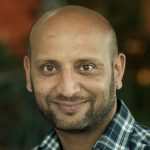
Naveed Haq
Naveed Haq is the Regional Development Manager, Asia-Pacific at the Internet Society (ISOC). He works closely with both the Senior Director, Global Engagement and the Regional Bureau in Asia. Prior to joining ISOC, Naveed was working with Pakistan Telecommunication Authority (PTA), Government of Pakistan since 2002, most recently as Assistant Director, Information & Communication Technologies (ICT).
He is an ICT (Information and Communication Technologies) professional, researcher and technology activist with major area of work surrounded around telecommunication networks and the Internet. Internet had been a central part of his professional career ranging from administration of Internet Infrastructure to working with Industry stakeholders on regulatory and policy measures of Telecom and Internet development in Pakistan. Some of the main projects performed by him include; establishment of Internet peering point, formulation of IPv6 monitory group, preparing ICT security guidelines, formulation of Broadband stakeholders group, organizing industry awards for innovative mobile applications and preparing Industry guidelines on telecommunications for disabled and child online protection.
Naveed also carries a deep interest towards community activities to enhance awareness and participation from individuals towards local and global Internet subjects. He has delivered a number of talks to community members and also wrote a number of articles for International blogs and magazines. He is also an alumni member of ICANN’s fellowship, ISOC’s Next Generation Leadership and Diplo Foundation’s Internet Governance Capacity Building program.
He possesses a Bachelor’s and Master’s in Computer Sciences (Pakistan). His sidelines include research, reading, cricket and music.
Naveed is based in Islamabad, Pakistan.

Ni Chenying
Yvonne NI, born in Shanghai, began studying in Hong Kong after graduating from high school in Shanghai. She is currently a first year undergraduate student majoring in science of creative media, focusing on Internet Game development. She commenced art education as a child and is especially interested and experienced in painting. Also with a strong motivation for learning computer techniques and gaining a science education background, she began designing computer graphics in secondary school.
She cooperates actively with students’ societies, schools, and companies in the field of design works and web development. She joined the Net Mission ambassadors program hosted by Dot Asia Company and supported by Internet Society Chapter of Hong Kong to arouse Hong Kong people’s awareness regarding issues of digital divide and Internet safety. Through the social work, she realized the importance of promoting appropriate usage of the Internet and got interested in Internet Governance. Yvonne also keeps a close on Web 2.0 technologies. She believes that by integrating further study and development of both Internet Governance and Web 2.0 techniques, the Internet can serve the society better, especially those with disabilities.

Rafid Fatani
Fatani first gained academic insight into the different layers of the Internet architecture, its constraints and the development of its various standards and applications, experiencing Internet governance through the prism of the development of its technical infrastructure during his Engineering and computer science programme at the undergraduate level.
Upon continuing his studies at the postgraduate level, Fatani had the opportunity to explore technology from the perspective of the freedom of expression, privacy, and safeguarding of national interests which provided him with a better understanding of Internet governance as a multidisciplinary phenomenon. Fatani’s MA dissertation on The Global Governance of the Internet: Context, ICANN and the Case Study of the Domain Name System Root, and his interaction inside the Department of Politics helped him develop a good comprehension of the social, cultural, and legal challenges that arose from the rapidly evolving Internet. This proved to be very influential when he came to consider possible prospects of doctoral research.
The decision to undertake a PhD program reflected Fatani’s genuine interest in further exploring and contributing to the debate of the future of technological evolution. Through the course of Fatani’s doctoral studies, he has had the opportunity to participate in both Rio and Hyderabad IGF as well as the regional UK IGF, enhancing his understanding of the different stances and dilemmas faced by stakeholders. Moreover, participating in an online course with Diplo Foundation, which introduced analytical insight in challenging Internet governance related topics, expanded his horizons on innovative methods of online learning and research.
While Fatani is currently interning at the Secretariat of the Internet Governance Forum in Geneva, his research is in the process of developing an open-source platform, through which different stakeholders can provide direct user-generated input to his thesis as a new form of data collection. If marketed appropriately, this could provide an excellent set of primary data that would otherwise use up a lot of time and resources. Although not a completely novel idea, Fatani believes the use of similar methodologies will pave the way for a new frontier of social science research.

Tracy Hackshaw
Tracy Hackshaw is Vice Chair of the Internet Society Trinidad & Tobago Chapter. He is a graduate of the DiploFoundation’s Internet Governance Capacity Building Programme in 2008 and is now a member of their Research & Teaching Faculty. Tracy participated in the ICANN Fellowship Program at the Sydney and Seoul Meetings in 2009, at Catagena in 2010 and at Prague in 2012.
Additionally, he participated as an Internet Society (ISOC) Ambassador (part of the ISOC Next Generation Leaders Program) to the 2009 Internet Governance Forum (IGF) in Sharm-el Sheikh; and returned as an ISOC Ambassador for the 2010 IGF in Vilnius. He also participated in the 2011 IGF in Nairobi as a DiploFoundation Emerging Leader for the Digital World. He is a national of the Republic of Trinidad & Tobago and has been educated at the 1st degree level in Sociology & Psychology via the University of the West Indies (St. Augustine) and at a graduate level in International Management at the University of London (Royal Holloway).
Professionally, Tracy is Team Lead & Chief Solution Architect in the Solution Architect Office at the National Information & Communication Technology Company Ltd. and is currently on assignment as Technology Co-ordinator to the Ministry of Science & Technology in Trinidad & Tobago.
In addition, Tracy is involved, in advisory capacity to the Government of the Republic of Trinidad & Tobago’s representation to the ICANN Governmental Advisory Committee (GAC).

Veaceslav Sidorenco
Since 1983, Dr. Veaceslav Sidorenco has been an Associate Professor at the Faculty of Radioelectronics and Telecommunications with the Technical University of Moldova. Since 1999 he has also been a Leading Specialist of RENAM: Research and Educational Networking Association of Moldova (NREN of Moldova).
Veaceslav holds a PhD in Technical Sciences, specializing in computer sciences, networking, software engineering, information society, technical diagnostics, and other related domains. He also serves as an Academician of International Informatization Academy of the Moldova branch. Previously, since 1975 he worked as a Senior Research Assistant at the Automated Test Equipment Engineering department of the Scientific and Research institute Quant (Moldova).
Veaceslav has been a member of ISOC since 1997 and was accredited at the World Summit for Information Society (WSIS). As a UNDP expert, he participated in projects of the development of the National Strategy and Action Plan for Building the Information Society in Moldova, the concept and portal architecture of national e-government, e-development assessment methodology framework design, and other projects. As an ITU-D expert, he performed country-level studies and consultative reports on different aspects of information society and ICT infrastructures in Moldova, Kyrgyzstan, and Belarus. He participated in implementation of a range of international projects, supported by the EU (FP6, 7) and NATO Science Program related to NREN e-infrastructure and grid computing building in Moldova.
Veaceslav is also the co-author of more than 180 scientific and technical publications, including 11 patents of invention.
2008 IGF Ambassadors
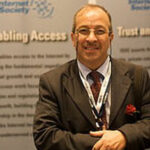
Ala’a Al-Din J. Kadhem Al-Radhi
Ala’a Al-Din J. Kadhem Al-Radhi has a Bachelor degree in Electrical Engineering from the University of Baghdad and a Masters in Computer Information Network Security from DePaul University, Chicago. He has worked and trained in several countries and is currently based in Jordan. With more than 27 years of career, his past works included the technical advisor to the Iraqi ministerial of Telecommunications, Engineering observer with ITU in addition to various positions in information systems management and engineering platforms. These positions have been in governmental, intergovernmental, and private enterprises in Iraq, Jordan, the United Arab Emirates, and France including the UN-ITU. His current activities include being an advisory council member of PIR (Public Interest Registry), ICANN Board of Directors Election Candidate 2009-2011, AKMS (Arab Knowledge and Management Society) Board of Trustees Member, ISOC IGF Ambassador, Regional ITU Consultant in addition to being a member of many global organizations. He is a fellow of ICANN, RIPE-MENOG, DIPLO Foundation and DePaul Alumni. He works for outreach, awareness, match making, capacity buildings and researches in various topics: Internet 2, Web 2.0, emerging technologies, IG, social networking, e-governance, ICT4D, digital divide, DNSSEC, IDNs, and convergence.
He has published papers on many issues including Iraqi HE challenges and future; DNSSEC; 4G Visions; E-Learning Roadmap for Iraq (Awarded); IPV6, IPTV, E-Gov. for Arab Countries; Digital Divide; Regional capacity building for the non-commercial use of Internet; Cyber Crimes and Risk Assessments; Disaster Recovery and Business Continuity Analysis.
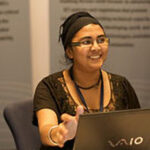
Anju Mangal
Anju Mangal holds a Bachelor of Science in Information Systems and GIS at the University of the South Pacific; a Certificate in Internet Governance from the Diplo Foundation, Switzerland; and a Certificate in ESRI ArcGIS from the University of Hawaii. She is currently pursuing her Masters of Arts in Governance at the University of the South Pacific. Anju is the Information Specialist at the Land Resources Division in the Secretariat of the Pacific Community (SPC). She is working towards the development of information knowledge management (IKM) activities in Land Resources Division (LRD), SPC, where she is in-charge of training LRD staff in IKM and data management information systems. Ms Mangal promotes participatory approaches to support sustainable management of natural resources through geographical information systems (GIS) and coordinates appropriate training to build capacity in ICTs, using the Internet to access web-based information systems within the 22 Pacific Island Countries. Her project “Participatory 3D GIS Modelling Exercise for Resource Use, Development Planning and Safeguarding Intangible Cultural Heritage in Fiji” received the e-culture World Summit Award in 2007.
Ms Mangal is the Chairwoman of the Pacific Islands Chapter of the Internet Society (PICISOC) Women in ICT Special Interest Group, which aims to help Pacific women better understand the current state of access, participation, and leadership of Pacific Women in ICTs. She served as a Board member of PICISOC for two years. She is particularly interested in working to increase the participation of women, youth, and people with disabilities, who are amongst the most neglected groups in ICT.

Ceren Ünal
Ceren Ünal joins the Internet Society as the Manager, Chapter Development- Europe.
Ceren’s engagement with ISOC began as an individual member that further developed through the NGL Program as an IGF Ambassador (Hyderabad 2008, Vilnius 2010) and various other ISOC events and projects she participated in and eventually became the founding chair of the Internet Society Turkey Chapter (ISOC-TR) in 2014.
Ceren Ünal studied law at Ankara University, subsequently gaining an LLM degree from Queen Mary, University of London, specialising in Computer and Communications Law as a British Chevening Scholar. Always fascinated by the Internet and the challenges and opportunities it presents to the law as we know it, Ceren has been teaching and consulting on IT/Internet law issues since 2003.
She is qualified as an Attorney-at-Law, a National Patent and Trademark Attorney and a European Patent Attorney as well as working as an instructor at Bilkent University Faculty of Law prior to joining Internet Society. She is also a PhD candidate in civil Law at Ankara University with a dissertation on ISP Liability, for which she has conducted research in Freiburg University and Swiss Institute of Comparative Law as a van Calker Scholar.
Ceren speaks Turkish, English and German. She is based in Ankara, Turkey.
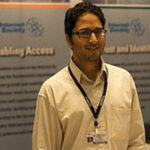
Dhanaraj Thakur
Dhanaraj Thakur is a Jamaican citizen, currently studying for a PhD student at the Georgia Institute of Technology (Atlanta, USA), where his research focus is on ICT policy in developing countries. Using a variety of methodologies, he has worked on several ICT4D-related research projects (such as ICTs and political participation, telecentre sustainability, and telecommunications policy reform) in Jamaica, Liberia, and Kyrgyzstan among others. Mr Thakur has undergraduate degrees in computer studies (University of Technology, Jamaica), international relations (University of the West Indies, Jamaica), and a graduate degree in development studies (London School of Economics). Prior to commencing his doctorate studies, he worked with several government agencies and NGOs in Jamaica in the area of community development, to support both the planning and implementation of social and infrastructure projects. Mr Thakur currently volunteers with various development-oriented groups in Atlanta.

Glen Farrelly
Glen Farrelly resides in Toronto, Canada. After ten years working in the Internet industry, he is now pursuing a Master of Arts in Communications via e-learning from Royal Roads University, Canada. He has also studied the Internet at University of Torontos Strategic e-Business program and at Humber Colleges Internet Management program. His career highlights include six years managing a financial services website, developing websites with a dot.com start-up, and writing online travelogues for Canadian Geographic and Bootsnall.com. His masters thesis will examine factors limiting the widespread adoption in Canada of website accessibility for the visually impaired. His other research interests include folksonomies, social media, website usability, microblogging, and Canadian Internet history. He is a member of the Association of Internet Researchers, Canadian Internet Registration Authority, the Internet Society, CaseCamp and other local Internet-related groups.
Mr Farellys recent honours include winning a Joseph-Armand Bombardier Canada Graduate scholarship and two Apex awards for excellence in overall website and online annual reports. Glen explores Internet topics in his blog and for Backbone Magazine.
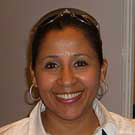
Hanane Boujemi
Hanane Boujemi has worked on cyber-space related issues different issues throughout various research projects during her academic enrolment, culminating in work on Internet Governance. Her central field of research is the impact of the Internet on sustainable development and how it is important to implement monitoring, rather than controlling systems, that bring more opportunities to lesser developed countries (LDCs), while respecting civil liberties. Ms. Boujemi holds a Bachelors degree in Business & Commerce from Hassan II University and the Sorbonne and a Masters in Human Rights and Democratisation from the University of Malta and the University of London. She has also studied English literature and linguistics at Mohammed V University and is currently studying an intellectual property rights (IPR) course at UC Berkley. She speaks and writes six languages. Ms. Boujemi is very involved in the Internet governance process at the international level.
She is the research coordinator of Diplo Foundations Internet Governance projects, a tutor of the MENA region groups, and is in charge of Diplos partnership projects and networking with institutions interested in Internet governance capacity building in the region. Her special areas of interest are access, IPR, human rights, safety issues, the policy making process, Internet and politics, and International relations in the era of Internet. She is currently coordinating research on multilingualism, access to knowledge, cyber security, future of Internet governance, and IPv6. Ms. Boujemi is an active member as well of the Moroccan Internet Society Chapter (MISOC) and a Fellow of the American Society for Information Science and Technology.
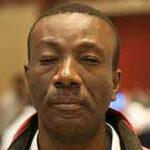
Jean Philemon Kissangou
Jean-Philemon Kissangou holds a masters degree in informatique (networking) from Senegal and a diploma in Telecommunications Policy and Regulation from the University of the West Indies, St Augustine. From 2005 to 2006, he worked on Internet governance courses and research organised by the Diplo Foundation. This role led to a United Nations fellowship as a trainee at the Internet Governance Working Group Secretariat, Geneva, in September 2005. Mr Kissangou has been closely involved with the Internet community through ISOC, having helped to setup the Congolese chapter of ISOC, of which he is currently the chair. Before that, he managed and chaired two local Internet-related organisations, Le CACUP (Centre Africain de Complementarite Scolaire-Universitaire et de Promotion), an education and ICT NGO accredited by the WSIS, and ASCIS (African Civil Society for Information Society). Within those organisations, Mr Kissangou initiated many consciousness-raising activities, lectures, workshops, training sessions, and projects on Internet related-issues.
Mr Kissangou is involved in contributing to the Congolese national ICT development programme. He has also worked as a teacher for many years, and is now a technical manager in an ISP. Mr Kissangou is a member of the board of directors of AfriNIC (the Africa RIR).

Khaled Koubaa
As a forward-thinking, accomplished Government Relations and Public Policy expert, Khaled is respected for 20 years researching, defining, delivering, and coordinating key global public policy issues for companies and institutions, including Google and Facebook. Khaled is highly sought for advice and consulting on the intersection of business, technology, and public policy on the Internet, domain names, IP Address, e-Commerce, privacy, and telecommunications. He maintains a proven track record of providing clear direction on expectations and deliverables by designing outreach strategies and anticipating emerging policy issues. Khaled is proud to have earned a reputation as a motivational, influential leader and collaborator who engages with government officials and key stakeholders to bring about desired outcomes aligned with corporate interests. As an out-of-the-box thinker, Khaled is committed to developing innovative political and policy strategies to foster strong relationships with policymakers and increase the company’s influence and presence on a global scale.
Khaled currently leverages his talents leading Public Policy work at Facebook, where he quickly earned a reputation for cultivating beneficial and strategic partnerships and alliances with other industry stakeholders, government officials, and organizations to advance the policy goals. Among his many accomplishments include recently being nominated by the United Nations Secretary-General as a member of the Internet Governance Forum (IGF) Multi-Stakeholder Advisory Group (MAG). He has served on the board and the advisory council of various Internet-advocacy organizations, including ICANN, the Internet Society, AfriNIC, the Public Interest Registry, and the World Bank Group. Khaled holds a Master’s Degree in Electronic Commerce and International Procurement from Ecole Supérieure de l’Economie Numérique. He has developed in-depth knowledge in public policy and IT issues affecting the United States by attending programs and earning certifications at Harvard, MIT, University of Southern California, and Syracuse University.
In his free time, Khaled enjoys traveling, spending time with his family, and further developing his knowledge on all topics related to the 4th Industrial Revolution. The Internet strikes a personal chord with Khaled as he met his wife online and subsequently saw his daughter for the first time online.

Marcin Cieslak
ICT Consultant, President of ISOC Poland System Business Consulting.

Michiel Leenaars
Michiel Leenaars is a Dutch citizen, currently serving as Director of Strategy at NLnet foundation and Director of the Internet Societys Netherlands Chapter. In addition, he is employed by the Netherlands Organisation for Scientific Research (NWO) within its subsidiary Netherlands National Computing Facilities Foundation (NCF) as an advisor on e-Infrastructure and e-Science. Prior to 2007, Mr Leenaars was very active (on behalf of the Netherlands Organisation for Scientific Research) in the European policy body e-Infrastructures Reflection Group (e-IRG), and was lead editor of the e-Infrastructures Roadmap, a long term, strategic, pan-European vision document maintained by the e-IRG.
He has a background in Physics at Technische Universiteit Eindhoven and Theory and history of literature and visual and verbal communication at Tilburg University. He is active in a number of national and international organisations, such as Gridforum Nederland (as secretary of the board), OpenDoc Society (a vice chair), the European domain name registry EURId (as a member of Strategic Committee), NEN-normcommissie (NC) 381034 ‘Behandeling en uitwisseling van tekst’ (the Netherlands’ mirror committee of ISO/IEC JTC 1/SC 34 ‘Document description languages and processing languages’), and Petities.nl foundation (as treasurer).

Priyanthi Daluwatte
Priyanthi Daluwatte is from Colombo, Sri Lanka. She works in the higher education sector in university administration and policy capacities, currently as a Senior Assistant Secretary to the University Grants Commission (a government organisation). She hold a degree in Biological Sciences and an MSc in Computer Science from the University of Colombo. Ms. Daluwatte has tutored in the Internet Governance Capacity Building Programme for Diplo since 2007, after herself completing Diplo Foundations Internet Governance Capacity Building Programme in 2006. She also has work experience in the development field and in ICT4D projects bridging the digital divide. She works as a Volunteer in Sarvodaya Fusion, Sri Lanka.
She was a speaker at the launch of telecentre.org in WSIS, Tunis (2005). She has participated in other conferences in ICT4D including GKP International Forum 2005 and 2006, eAsia 2007, and GK3 in 2007. She also coordinated activities for GKP South Asia Regional partnership in 2006-2007. Her interests are higher education policy, Internet governance, e-learning, research on ICT4D, and telecentre communities.

Rajendra Prasad Poudel
Rajendra Prasad Poudel is a Nepalese citizen, with a Masters degree in Mathematics and Information Technology. He taught in the University of Nepal for six years before joining E-Network Research and Development (ENRD) as Project Director in 2004. At ENRD, Mr Poudel designed the organisations ICT project for rural areas of Nepal. He is now involved in promoting tele-medicine and tele-education projects via broadband wireless networks in remote villages. This work involves considerable research in broadband wireless technology for mountainous and other difficult regions. To pursue this research, Mr Poudel is currently working with a Japanese company which is providing training for the projects through micro-server technology.

Reynold Guerrier
Reynold Guerrier, a citizen of Haiti, is a network engineer who holds a Masters degree in Mobile networks. He has been working for the past 12 years as network administrator for Internet systems, a network engineer in a telecommunications company, and the technical manager of a data transmission company, designing and maintaining complex networks and information systems. Mr Guerrier is an experienced consultant who has provided advice for many NGOs based in Haiti. He was a member of the Haitian delegation in Doha, Qatar at the 4th World Telecom Development Conference held in 2006. Since 2003, he has led a team planning, designing, maintaining, and securing one of the biggest backbone networks in Haiti. More recently, he has been involved in WiMAX deployment in Haiti. He also has considerable experience working with international transit and peering.
Mr Guerrier is a Board member of Association Haitienne pour le Developpement de Technologies de l’Information et de la Communication (AHTIC), which promotes Internet development in Haiti. He is currently involved in a project installing telecenters in the inner cities and the mountain population of Haiti.

Sunyoung Yang
Sunyoung Yang is a Korean citizen studying a PhD with the University of Toronto, specialising in Internet user communities and their cultures. She also works as a researcher for the Center for Youth & Cultural Studies, Yonsei University, South Korea, on the anthropology of South Korea. Ms Yang is currently conducting field research in Korea for her dissertation, focusing on the theme of Internet cultures with special focus directed at so-called “Internet addict communities” since 1999. Previously, Ms Yang completed undergraduate and masters qualifications in Sociology and Anthropology in South Korea. She worked as a creative director in a youth center for three years, during which time she organised the second Internet Fiesta for the Korean ISOC Chapter. She has been a member of the Asia Pacific Next Generation Camp (APNG) since 2002, and organised the second and third camps as a chair and vice chair.
2007 IGF Ambassadors

Abdul-Aziz Hilali
Dr Abdul-Aziz Hilali has a long history of experience in the Internet. As a founder of the ISOC Morocco chapter in 1994, his involvement has spanned a broad range of participation in both technical and governance spheres. He holds higher degrees in mathematics and has a distinguished career as an academic, researcher, and government advisor, with a history of publications on many aspects of the Internet and telecommunications sciences. Dr Hilali participated in the World Summit on the Information Society and the first IGF meeting in Athens. He has served on the ICANN At Large Advisory Committee (ALAC) and taken part in many ICANN meetings around the world.
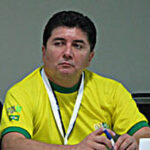
Carlos Vera
Carlos Vera an experienced electrical engineer who also has formal studies in international relations, technology and intellectual property law, and telecommunications and Internet regulatory policy. He is the founder and International Director of the Ecuadorian Chapter of ISOC, responsible for the Ecuadorian Internet Governance Forum. His history within the telecommunications and Internet sector spans more than 20 years and includes work as a former advisor to the President of the Council of Telecommunications in Ecuador.
He was Director of the National Agenda of Connectivity in charge of Public Policies on Internet, ICTs, Connectivity, Universal Services and Internet Governance; President of the Electrical and Electronic Engineers Association of Pichincha Ecuador; and Vice President of the World Committee of IT in the World Federation of Engineers. Mr Vera has also published more than 200 specialised articles on engineering, business, ICTs, public policy, and Internet governance.

Charles Mok
Charles Mok has a long involvement with the Hong Kong Internet community.
He is the founding chairman of the Internet Society Hong Kong Chapter, former president of the Hong Kong Information Technology Federation (HKITF), and former chairman and co-founder of the Hong Kong Internet Service Providers Association (HKISPA).
Educated as an electrical engineer, he also has a strong business grounding, having been the Deputy Managing Director and a co-founder of one of Hong Kong’s first Internet service providers.
He is a director of a technology consultancy business and sits on the boards of several technology companies.
Mr Mok is a member of the Policy Advisory Board for the operator of the .mobi sponsored top level domain and is a former director of the .hk domain name registry. His has served on many government bodies and advisory committees, has a deep commitment to cross-sector public affairs, and is an experienced media commentator on technology issues.
On 9th September 2012, Charles Mok won his seat (of the Information Technology Functional Constituency) for the Hong Kong Legislative Council. The Internet Socitey around the world offers its heartfelt congratulations to Charles and all our members who continue to work for an open and accessible Internet.

Cristos Velasco
Cristos Velasco is a Mexican attorney with practical experience in the fields of international trade, telecommunications and technology law. He was the co-founder of a Graduate Diploma Course on Legal Aspects of Information Technologies at Instituto Tecnologico Autonomo de Mexico (ITAM) in 2002 where he has lectured in the areas of Internet regulation, e-commerce, privacy, data protection and cybercrime law and policy.
One of his specializations is in the field of privacy and data protection law. He has written extensively in the field since 2000, and has presented in national and international workshops and seminars and related international organizations working in the field. He maintains a blog “Data Protection and Privacy in Mexico and at the International Level” http://www.protecciondedatos.org.mx, informing, publishing and commenting on relevant news, policies and law initiatives in the areas of privacy, data protection, cross-border data flows, data retention and cybercrime occurring in Mexico, Latin America and Europe.
He is the author of “Mexico’s Cyberlaw Monograph” of the International Encyclopaedia of Laws, published by Kluwer Law International, the last edition of which was published in April 2010.
He has been an active member of ISOC, Mexico Chapter since 2001. He has been involved in the academic and non-profit sector for a number of years. He is the founder and the current General Director of the North American Consumer Project on Electronic Commerce NACPEC since 2003. He is the Director and Coordinator of Ciberdelincuencia.Org, an initiative initially supported by the Internet Society and NACPEC launched in September 2008, the purpose of which is to facilitate and promote the exchange of information and best practices in the field of cybercrime and security among legal and policy experts in Latin-America.
He obtained an LL.M in International Trade Law from the University of Arizona in Tucson in 2001. He holds specializations in Business Law from Instituto Tecnologico Autonomo de Mexico (ITAM), and in International Trade Law from Universidad Panamericana (UP) in Mexico City, and obtained a Bachelor of Laws (JD) from Universidad Del Valle de México in 1998. He obtained the European Certificate on Cybercrime and Electronic Evidence (ECCE) in May 2009. He is currently working on his PhD thesis at Universidad Carlos III (UC3M) in Madrid.
His mother language is Spanish and he is fluent in English and German.
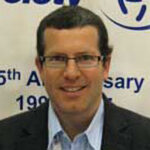
Gabriel Adonaylo
Gabriel Adonaylo manages Internet business arrangements for Comsat in Latin America. He has broad international and Internet experience, including Internet Exchange Points (IXPs) and peering arrangements. He participated in the first IGF meeting in Athens in 2006 and has also been actively involved in the Latin American and Caribbean Internet Addresses Registry (LACNIC) community and in many Argentinean initiatives, such as the IPv6 Task Force (AR-IPv6), Comision Interamericana de Telecomunicaciones (CITEL), Armed Forces Communications and Electronics Association (AFCEA), and Cámara Argentina de Bases de Datos y Servicios en LÃnea (CABASE).

Julian Casasbuenas
Julian Casasbuenas is a chemical engineer with more than 20 years experience in environmental, information, and communication technologies. He has been involved with ISOC since 1993, when he helped establish the NGO Colnodo, which provides Internet services to Colombian development organisations. Colnodo is motivated by issues such as human rights, environment, housing, and the betterment of women’s lives. With Colnodo he has helped to promote and democratise the use of ICTs and the Internet in Colombia and has developed significant expertise in issues of rural access, telecenters, and open source software.
He is a former chair of The Association for Progressive Communications (APC) and is now on the Board of the Development Gateway Foundation. He participated in the first IGF meeting, speaking on issues of cultural diversity and the role of ICTs in sustainable development and participated in the IGF Ambassadors Program in Rio de Janeiro in 2007, focusing in access issues. Currently is involved in the initiative Andinatic with the main goal of reach a more equitable access to the Information and Communication Technologies in the Andean region.

Mohammad Rahman
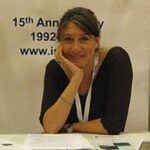
Monica Abalo Laforgia
Monica Abalo Laforgia is a telecommunications and ICT lawyer specialising in Internet issues such as privacy, cyber crime, data protection, and regulation. She recently was an organiser of a public even on New technical and legal trends in the Internet for the ISOC Argentina Chapter in Buenos Aires. She is an experienced negotiator and has a background in international legal projects. She currently operates her own consultancy business, focusing on data protection, spam, security, and cybercrime. She also works in policy and regulation analysis. Ms Laforgia is an instructor in telecommunications law at university level and has participated in many events within the Latin American Internet community.

Veronica Cretu
Mrs. Veronica Cretu has about 14 years of work experience in Moldova, both in private and in the not-for-profit sector. Mrs. Cretu is the Founder and the President of the CMB‶ Training Center since 2002, a NGO based in Chisinau, Moldova.
She holds a Postgraduate Diploma in Diplomacy and IT, with Mediterranean Academy of Diplomatic Studies of Malta. Mrs. Cretu acted as a Team Leader for the last 9 years and implemented/coordinated projects in Education, Employment, Internet Governance, Labour Rights, Museum Marketing, and other areas.
She has also acted as a Team-Leader at the international level: Mrs. Cretu acted as online tutor and research supervisor within the Internet Governance Capacity Building Program, with DiploFoundation, Malta during May 2005 – May 2007. Veronica also coordinated a Program on Internet Governance during 2007-2008 called Youth Leaders for Community Development through Internet Governance supported by the Global Knowledge Partnership and implemented in Moldova www.cmb.md/igf
Additionally, Mrs. Cretu acted as At Large Advisory Committee Member for South-Eastern Europe within the Internet Corporation for Assigned Names and Numbering (ICANN) from USA during May 2007-May 2008. Mrs. Cretu was in charge of the Organizational Development of the At-large Advisory Committee. In 2007 Mrs. Cretu acted as ISOC Ambassador for the Internet Governance Forum in Rio, Brazil.
During the last 2 years, Veronica collaborated with the International Labour Organization (ILO/GTZ) from Moldova, HIV/AIDS policies at the work place Program. Within this Program, Veronica conducted/organized about 20 training programs and events on HIV/AIDS for business sector, mass-media, NGOs, medical workers, adults and children. Additionally, Mrs. Cretu collaborated with AFEW Foundation East-West on conducting training programs for the League of people living with HIV/AIDS in Moldova.
Mrs. Cretu’s other areas of expertise include Training of Trainers (TOTs), Adult Education, Alternative Development Opportunities for Children and Youth, Vote Mock Elections/Vote Simulation Exercises Methodology, On-Line Education/Training, Community Development, Social Entrepreneurship, Organizational Development, Project Management and Fundraising, Internet Governance, ICT 4 Development.
Mrs. Cretu is currently involved as an international expert/consultant with the Critical Thinking Program of the Open Society Institute, New York, USA. In this capacity, she is supervising program implementation in Liberia (West Africa), conducted training programs in Turkey and is currently preparing for the implementation of the Critical Thinking Program in Nepal, starting with July 15, 2009. Veronica worked with International Organizations, Ministry of Education, National NGOs of these countries. Mrs. Cretu is a member of several committees/boards nationally and internationally.